Herbal Medicine
How to submit an article:
- Registered users can submit any published journal article that has a unique DOI (Digital Object Identifier) name or link to Research Hub.
- For example, you can paste the full DOI link:
https://doi.org/10.1109/5.771073or just the DOI name:10.1109/5.771073into the field above and click submit. - The person who is first to submit a valid article to Research Hub will forever be credited for it, and every article submission earns you +6 Research Points.
Related Topics
Published research studies are articles that present the findings of original research that has undergone a peer-review process and has been made publicly available in scholarly journals, books or other media.
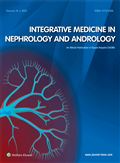
Can Prostate Cancer Patients be Prescribed Chinese Herbal Medicine? A Review of its Potential Modulatory Effects on the Androgen Receptor
2024 Jul 31 Integrative Medicine in Nephrology and Andrology Wu YL, Xian YF, Zhang J, Guo J, Lin ZX
The review suggests that Chinese medicine, especially CHM, shows potential as a complementary therapy for prostate cancer by inhibiting androgen receptor activity, improving patient quality of life, and addressing challenges like castration-resistant disease and drug resistance.
Review Article Prostate Cancer
Orally administered Chinese herbal therapy to assist post-surgical recovery for chronic rhinosinusitis—A systematic review and meta-analysis
2023 Oct 05 PLOS One Cui J, Lin W, May BH, Luo Q, Worsnop C, Zhang AL, et al.
Meta-Analysis Systematic Review Chronic RhinosinusitisOral Chinese herbal medicines appear to enhance recovery when used as supplements to conventional treatment after sinus surgery.
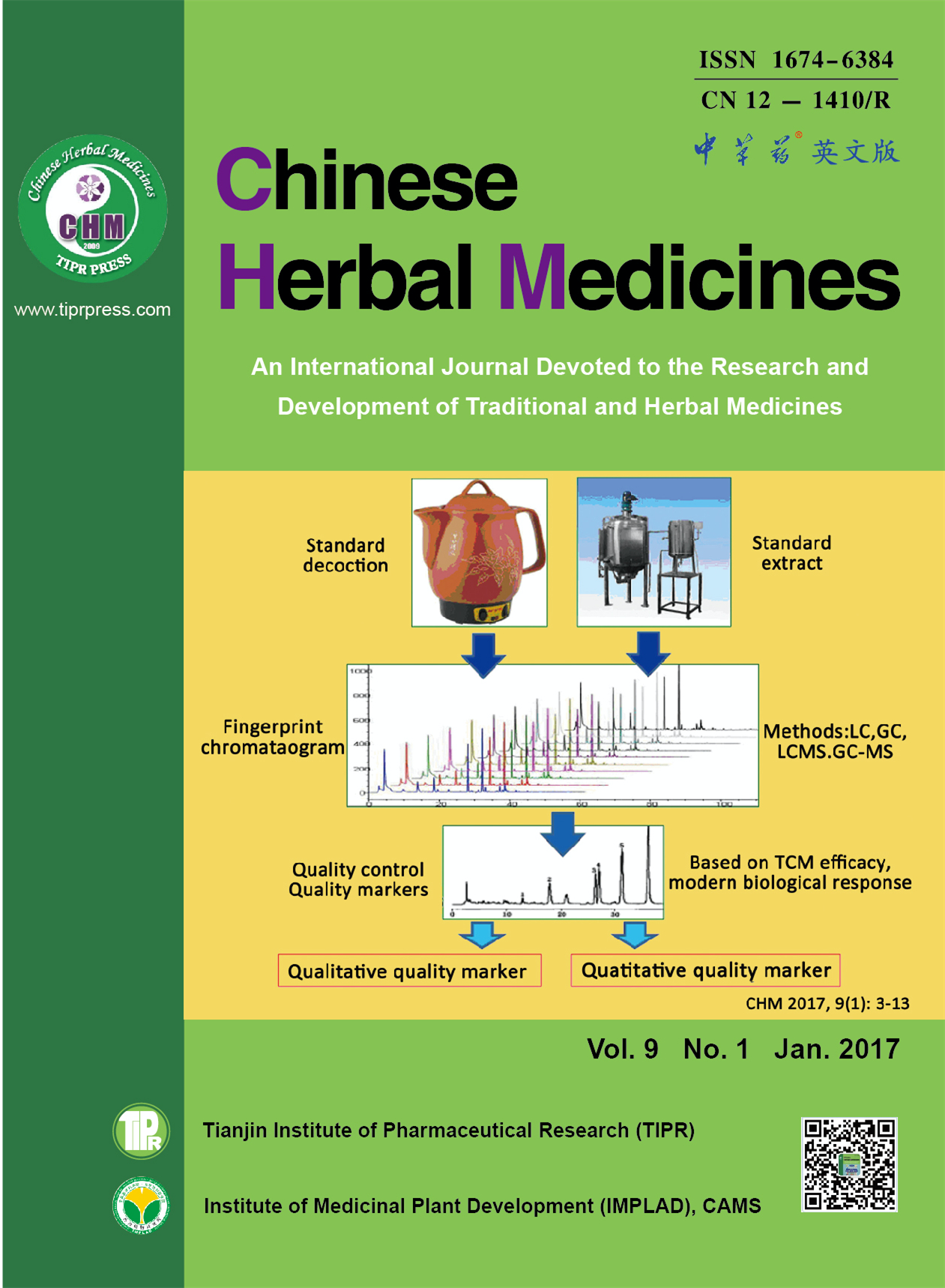
Chinese herbal medicines for prostate cancer therapy: From experimental research to clinical practice
2023 Oct Chinese Herbal Medicines Kong F, Wang C, Zhang J, Wang X, Sun B, Xiao X, et al.
Review Article Experimental Study Chinese Herbal Medicine Prostate CancerChinese herbal medicines (CHMs) possess multiple advantages, including multiple targets, pathways, and low toxicity, for the treatment of prostate cancer.

Ephedrae herba: A comprehensive review of its traditional uses, phytochemistry, pharmacology, and toxicology
2023 May Journal of Ethnopharmacology Zheng Q, Mu X, Pan S, Luan R, Zhao P
Ephedrae herba is an ancient herbal medicine with a broad spectrum of pharmacological activities that has been used for thousands of years in China. It is one of the most commonly used herbal components of the TCM formulas. However, there is a need to further understand the mechanisms of active components of Ephedrae herba.
Network Pharmacology Review Article
Chinese herbal medicines for treating ulcerative colitis via regulating gut microbiota-intestinal immunity axis
2023 Apr Chinese Herbal Medicines Yang Y, Wang Y, Zhao L, Wang F, Li M, Wang Q, et al.
Review Article Gut Microbiota Ulcerative ColitisChinese herbal medicines could potentially relieve ulcerative colitis by moderating the gut microbiota and intestinal immunity loop.
Research insights are moderated by the Research Hub team and offer an at-a-glance overview of interesting research findings.

2023 PLOS One
Oral Chinese herbal medicines appear to enhance recovery when used as supplements to conventional treatment after sinus surgery.
Meta-Analysis Chronic Rhinosinusitis
Orally administered Chinese herbal therapy to assist post-surgical recovery for chronic rhinosinusitis—A systematic review and meta-analysis
Cui J, Lin W, May BH, Luo Q, Worsnop C, Zhang AL, et al.

2023 Chinese Herbal Medicines
Chinese herbal medicines (CHMs) possess multiple advantages, including multiple targets, pathways, and low toxicity, for the treatment of prostate cancer.
Review Article Chinese Herbal Medicine Prostate Cancer
Chinese herbal medicines for prostate cancer therapy: From experimental research to clinical practice
Kong F, Wang C, Zhang J, Wang X, Sun B, Xiao X, et al.

2023 Chinese Herbal Medicines
Chinese herbal medicines could potentially relieve ulcerative colitis by moderating the gut microbiota and intestinal immunity loop.
Review Article Gut Microbiota Ulcerative Colitis
Chinese herbal medicines for treating ulcerative colitis via regulating gut microbiota-intestinal immunity axis
Yang Y, Wang Y, Zhao L, Wang F, Li M, Wang Q, et al.
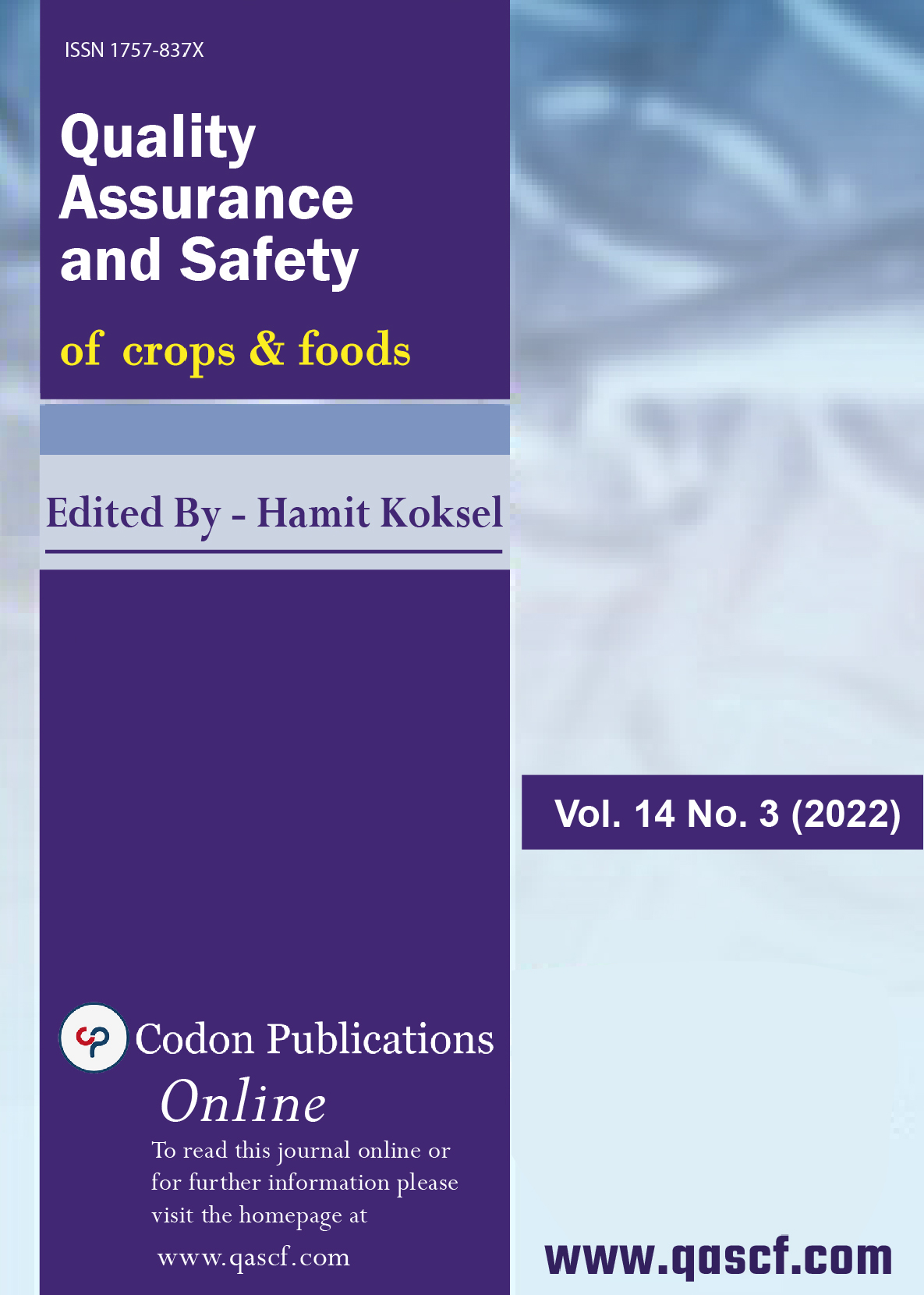
2023 Quality Assurance and Safety of Crops & Foods
The traditional Chinese herbal medicine Shaoyao Gancao Tang (SG-Tang) may be an effective and safe alternative treatment to relieve Restless Leg Syndrome.
Meta-Analysis Restless Legs Syndrome Shao Yao Gan Cao Tang
Efficacy and safety of Shaoyao Gancao Tang for restless leg syndrome: A systematic review and meta-analysis
Tian Z, Li R, Wei J, Huai W, Xia J, Jiang H, et al.

2022 PLOS One
Chinese Herbal Medicines may help with chronic sinusitis and acute rhinosinusitis symptoms with LDXGT and modified CEZS working well, especially for CRS.
Systematic Review Chinese Herbal Medicine Rhinosinusitis
Chinese herbal therapy in the management of rhinosinusitis—A systematic review and meta-analysis
Cui J, Lin W, May BH, Luo Q, Worsnop C, Zhang AL, et al.
Review Articles
Review articles summarise and critically evaluate the current state of research on a specific topic or field by synthesising multiple primary research studies.

Can Prostate Cancer Patients be Prescribed Chinese Herbal Medicine? A Review of its Potential Modulatory Effects on the Androgen Receptor
2024 Jul 31 Integrative Medicine in Nephrology and Andrology Wu YL, Xian YF, Zhang J, Guo J, Lin ZX
The review suggests that Chinese medicine, especially CHM, shows potential as a complementary therapy for prostate cancer by inhibiting androgen receptor activity, improving patient quality of life, and addressing challenges like castration-resistant disease and drug resistance.
Review Article Prostate Cancer
Orally administered Chinese herbal therapy to assist post-surgical recovery for chronic rhinosinusitis—A systematic review and meta-analysis
2023 Oct 05 PLOS One Cui J, Lin W, May BH, Luo Q, Worsnop C, Zhang AL, et al.
Meta-Analysis Systematic Review Chronic RhinosinusitisOral Chinese herbal medicines appear to enhance recovery when used as supplements to conventional treatment after sinus surgery.

Chinese herbal medicines for prostate cancer therapy: From experimental research to clinical practice
2023 Oct Chinese Herbal Medicines Kong F, Wang C, Zhang J, Wang X, Sun B, Xiao X, et al.
Review Article Experimental Study Chinese Herbal Medicine Prostate CancerChinese herbal medicines (CHMs) possess multiple advantages, including multiple targets, pathways, and low toxicity, for the treatment of prostate cancer.

Ephedrae herba: A comprehensive review of its traditional uses, phytochemistry, pharmacology, and toxicology
2023 May Journal of Ethnopharmacology Zheng Q, Mu X, Pan S, Luan R, Zhao P
Ephedrae herba is an ancient herbal medicine with a broad spectrum of pharmacological activities that has been used for thousands of years in China. It is one of the most commonly used herbal components of the TCM formulas. However, there is a need to further understand the mechanisms of active components of Ephedrae herba.
Network Pharmacology Review Article
Chinese herbal medicines for treating ulcerative colitis via regulating gut microbiota-intestinal immunity axis
2023 Apr Chinese Herbal Medicines Yang Y, Wang Y, Zhao L, Wang F, Li M, Wang Q, et al.
Review Article Gut Microbiota Ulcerative ColitisChinese herbal medicines could potentially relieve ulcerative colitis by moderating the gut microbiota and intestinal immunity loop.
Clinical Trials
Clinical trials are research studies that involve people and are conducted to evaluate the safety and efficacy of new treatments or interventions, such as drugs, medical devices, or behavioural therapies.
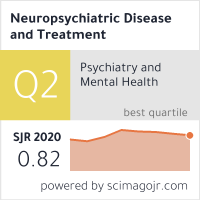
Clinical Efficacy of the Chinese Herbal Medicine Shumian Capsule for Insomnia: A Randomized, Double-Blind, Placebo-Controlled Trial
2022 Mar Neuropsychiatric Disease and Treatment Chen S, Xu Z, Li Y, Wang T, Yue Y, Hou Z, et al.
Shumian capsule (SMC) could safely improve sleep quality with depression and anxiety remission in insomnia patients.
Randomised Controlled Trial Insomnia Shu Mian capsule
Bupi Yishen Formula Versus Losartan for Non-Diabetic Stage 4 Chronic Kidney Disease: A Randomized Controlled Trial
2021 Jan 29 Frontiers in Pharmacology Mao W, Yang N, Zhang L, Li C, Wu Y, Ouyang W, et al.
No significant between-group differences were observed in the incidence of adverse events. We conclude that BYF might have renoprotective effects among non-diabetic patients with CKD4 in the first 12 weeks and over 48 weeks, but longer follow-up is required to evaluate the long-term effects.
Randomised Controlled Trial Bupi Yishen Formula
Multi-center study for acupuncture combined with Chinese medicine in the treatment of chronic spontaneous urticaria based on the theory of taking shu-stream points when the disease is aggravated
2020 Aug 14 Medicine Qin Y, Guo J, Song P, Hou T, He Y, Han M, et al.
Randomised Controlled Trial Acupuncture Dang Gui Yin Zi Shu-Stream PointsCombining acupuncture via shu-stream acupoints with the Chinese herbal formulation Dang Gui Yin Zi presents a potentially effective treatment for Chronic Spontaneous Urticaria.
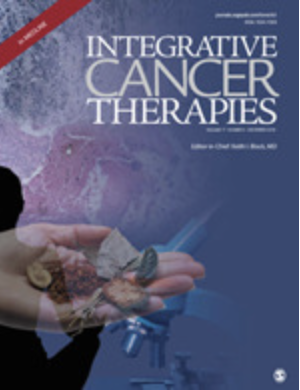
Comparative Effectiveness of Cheonwangbosimdan (Tian Wang Bu Xin Dan) Versus Cognitive-Behavioral Therapy for Insomnia in Cancer Patients: A Randomized, Controlled, Open-Label, Parallel-Group, Pilot Trial
2020 Jan Integrative Cancer Therapies Moon SY, Jerng UM, Kwon OJ, Jung SY, Lee JY, Yoon SW, et al.
Clinical Study Randomised Controlled Trial Cancer Treatment Support Tian Wang Bu Xin Dan InsomniaTian Wang Bu Xin Dan can potentially alleviate symptoms of cancer-related insomnia similarly to cognitive-behavioral therapy.

The RUTI trial: A feasibility study exploring Chinese herbal medicine for the treatment of recurrent urinary tract infections
2019 Oct 28 Journal of Ethnopharmacology Flower A, Harman K, Willcox M, Stuart B, Moore M
The RUTI trial demonstrated the feasibility and challenges of conducting a CTIMP trial on Chinese herbal medicine, establishing regulatory pathways, identifying difficulties with trial-naive herbal suppliers and unfamiliar recruiters and participants, and suggesting that recruiting patients through self-help networks and private TCM clinics would be a promising approach for future trials.
Randomised Controlled Trial Urinary Tract InfectionStudy Protocols
Published study protocols are detailed plans that outline the objectives, methodology, statistical analyses, and organisation of a research study that have been made publicly available for others to review and use as a reference.

Efficacy and safety of acupuncture in combination with Chinese herbal medicine in dealing with osteoporosis: A protocol for a systematic review and network meta-analysis
2022 Dec 30 Medicine Long P, Ju S, Wang J
The current systematic review and network meta-analysis will provide the effectiveness and safety of acupuncture in combination with CHM in dealing with OP. The research will provide reliable evidence for the clinical use of acupuncture in combination with CHM in dealing with OP.
Study Protocol Chinese Herbal Medicine Osteoporosis Acupuncture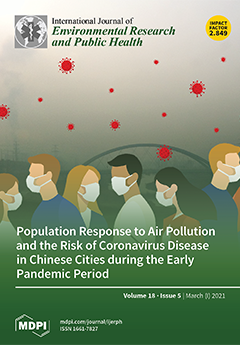
Pharmacopuncture Effects on Insomnia Disorder: Protocol for a Multi-Site, Randomized, Acupuncture-Controlled, Clinical Trial
2022 Dec 12 International Journal of Environmental Research and Public Health Lim JH, Lee JH, Kwon CY, Lee SH, Kang CW, Cho E, et al.
The findings of this trial willprovide evidence that will be useful in clinical decision-making for insomnia treatment strategies.
Study Protocol Acupuncture
Efficacy and safety of Chinese herbal medicine Danggui Sini decoction for knee osteoarthritis: A protocol for systematic review and meta-analysis
2022 Nov 18 Medicine Zhou X, Xiang KM, Li J, Yang G, Wang Y, Xia H, et al.
This study will compare the effects of DGSND and any other different methods on patients with KOA to provide high-quality, evidence-based clinical recommendations. The study provides a trustable clinical foundation for DGSND in the treatment of KOA.
Study Protocol Dang Gui Si Ni Dang Gui Si Ni Decoction Chinese Herbal Medicine
Efficacy and safety of Chinese herbal medicine Buzhong Yiqi decoction for postmenopausal women with osteoporosis: A protocol for systematic review and meta-analysis
2022 Nov 11 Medicine Xiang K, Yang J, Liu W, Chen L, Hou H, Zhou X, et al.
This study will evaluate the efficacy and safety of BZYQD in the treatment of PMOP, to provide high-quality, evidence-based clinical recommendations. It will also provide a trustable clinical foundation for BZYQD in the treatment of PMOP.
Study Protocol Postmenopausal Bu Zhong Yi Qi Tang Chinese Herbal Medicine
Effectiveness and safety analysis of SanHanHuaShi granules for the treatment of coronavirus disease 2019: Study protocol and statistical analysis plan for a randomized, parallel-controlled, open-label clinical trial
2022 Aug 16 Frontiers in Pharmacology Liu Y, Chen X, Wang H, Yao C, Gou X, Gao Z, et al.
The results of this study will provide robust evidence to confirm the effectiveness and safety of SHHS in the treatment of COVID-19.
Study Protocol SanHanHuaShi GranulesPresentation Slides

Meta-Analysis
Oral Chinese herbal medicines appear to enhance recovery when used as supplements to conventional treatment after sinus surgery.
Cui J, Lin W, May BH, Luo Q, Worsnop C, Zhang AL, Guo X, Lu C, Li Y, Xue CC

Review Article
Chinese herbal medicines (CHMs) possess multiple advantages, including multiple targets, pathways, and low toxicity, for the treatment of prostate cancer.
Kong F, Wang C, Zhang J, Wang X, Sun B, Xiao X, Zhang H, Song Y, Jia Y

Review Article
Chinese herbal medicines could potentially relieve ulcerative colitis by moderating the gut microbiota and intestinal immunity loop.
Yang Y, Wang Y, Zhao L, Wang F, Li M, Wang Q, Luo H, Zhao Q, Zeng J, Zhao Y, Du F, Chen Y, Shen J, Wei S, Xiao Z, Wu X

Meta-Analysis
The traditional Chinese herbal medicine Shaoyao Gancao Tang (SG-Tang) may be an effective and safe alternative treatment to relieve Restless Leg Syndrome.
Tian Z, Li R, Wei J, Huai W, Xia J, Jiang H, Xiong Y, Chen Y

Systematic Review
Chinese Herbal Medicines may help with chronic sinusitis and acute rhinosinusitis symptoms with LDXGT and modified CEZS working well, especially for CRS.
Cui J, Lin W, May BH, Luo Q, Worsnop C, Zhang AL, Guo X, Lu C, Li Y, Xue CC

Systematic Review
Chinese herbal medicine (CHM) improved AD symptoms but had no significant impact on patients' quality of life or IgE levels suggesting CHM's potential as an AD treatment with further research.
Cai X, Sun X, Liu L, Zhou Y, Hong S, Wang J, Chen J, Zhang M, Wang C, Lin N, Li S, Xu R, Li X
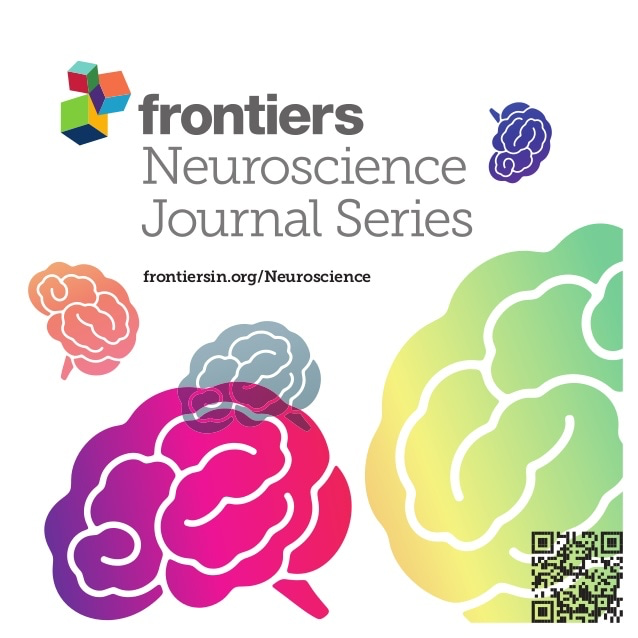
Systematic Review
Chinese herbal medicine shows promising and safe outcomes in relieving functional dyspepsia symptoms and associated psychological disorders.
Luo X, Wang L, Fang S, Qing X, Jiang T, Yang Y, Su X, Wei W

Review Article
Chinese Herbal Medicine Prescriptions (CHMPs) have demonstrated to be potentially effective in managing Inflammatory Bowel Disease (IBD) with a comprehensive, holistic approach.
Zhang S, Luo H, Tan D, Peng B, Zhong Z, Wang Y

Systematic Review
Chinese herbal medicine shows evident efficacy in treating coronary heart disease patients with anxiety or depression, notably improving symptoms of angina pectoris.
Wang B, Teng Y, Li Y, Lai S, Wu Y, Chen S, Li T, Han X, Zhou H, Wang Y, Lu Z, Li H, Ding Y, Ma L, Zhao M, Wang X

Systematic Review
Chinese herbal medicine has shown effectiveness in treating amenorrhea caused by antipsychotic drugs, with an overall treatment effectiveness rate of 0.91, but the duration of treatment is relatively long, and further research is required to explore its application in this context.
Liu L, Li H, Tan G, Ma Z
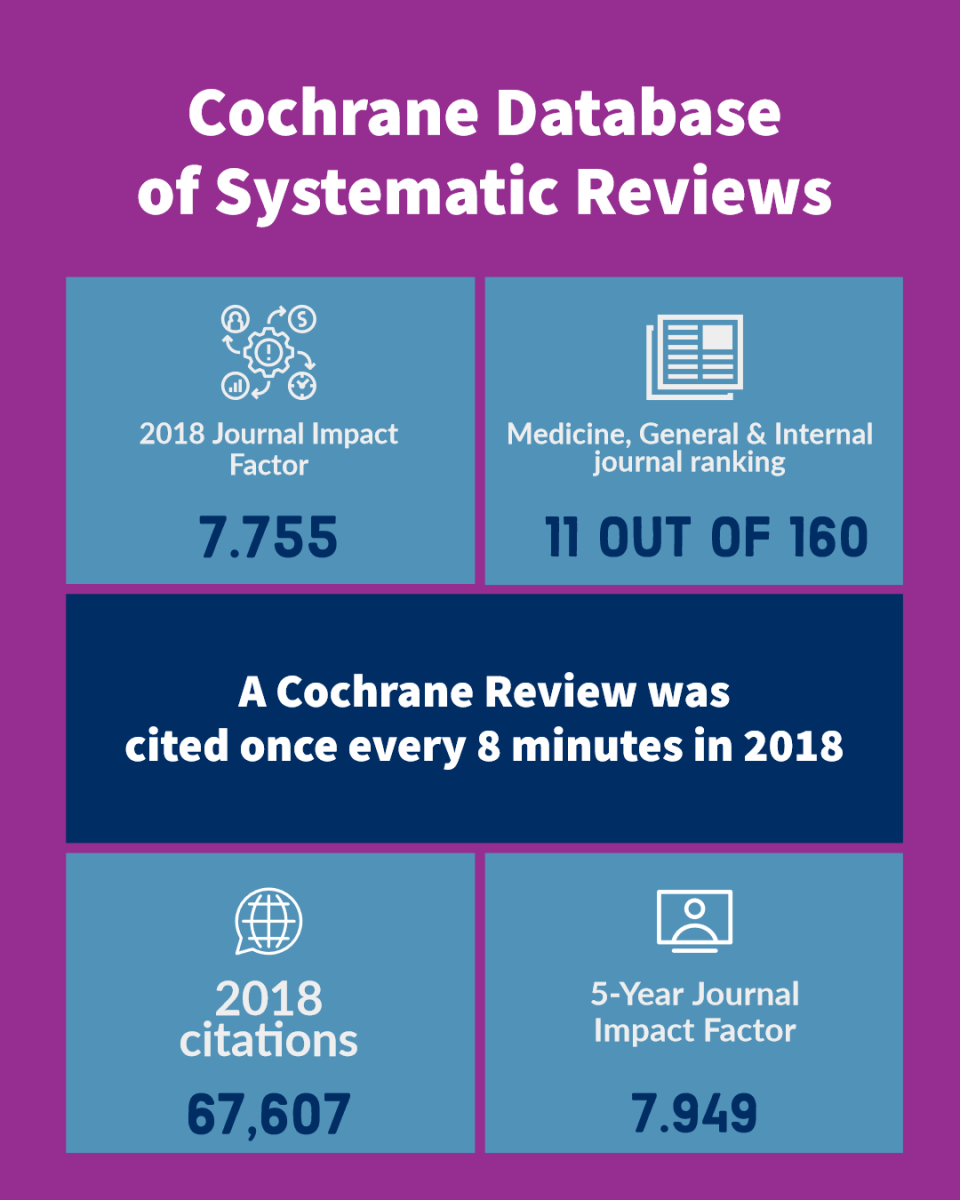
Systematic Review
Chinese herbal medicines combined with antithyroid drugs may offer benefits in lowering relapse rates, reducing the incidence of adverse effects, relieving symptoms, improving thyroid antibody status and thyroid function.
Zeng X, Yuan Y, Wu T, Yan L, Su H
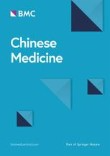
Review Article
Chinese herbal medicine interventions, particularly those based on the Bai-Tou-Weng-Tang and Shen-Ling-Bai-Zhu-San formulas, show promise in treating Ulcerative Colitis.
Zhang X, Zhang L, Chan JCP, Wang X, Zhao C, Xu Y, Xiong W, Chung WC, Liang F, Wang X, Miao J, Bian Z

Xiang Fu, a traditional Chinese herbal medicine, shows significant antidepressant effects.
Lu J, Li W, Gao T, Wang S, Fu C, Wang S
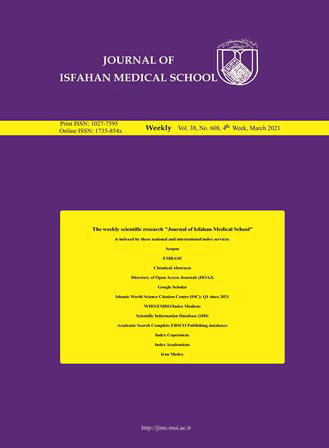
Systematic Review
Among the mentioned plants, castor oil and date fruit have more evidence in cervical ripening and onset of labor.
Ghasemi M, Ebrahimzadeh-Zagami S, Ghavami V.
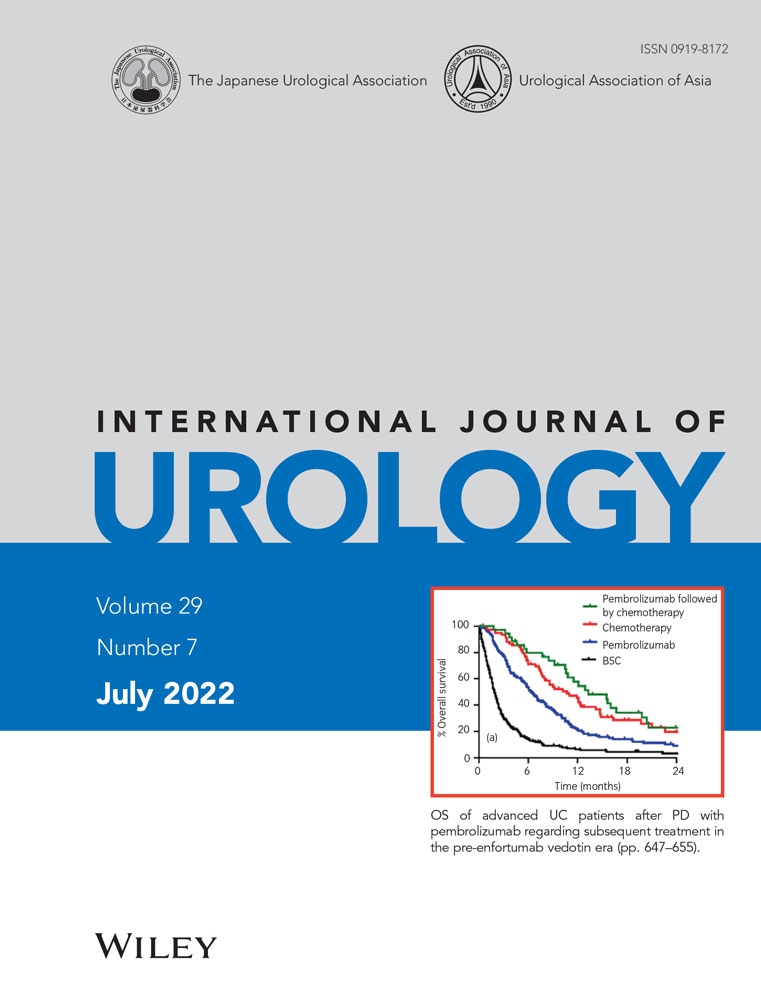
Cohort Study
Chinese herbal medicine can significantly reduce the risks of complications and need for surgery associated with benign prostatic hyperplasia.
Ou SC, Huang ST, Lin MC, Chen WC, Huang CP, Lin HJ

Systematic Review
Traditional Chinese medicine, including acupuncture, can provide superior pain relief and faster recovery for HIV-related Herpes Zoster compared to regular drugs.
Jiang Y, Zheng RX, Yu ZY, Zhang XW, Li J, Lan HD, Qiao SY, Han M, Cao HJ, Robinson N, Liu JP

Systematic Review
Xiao Yao San can improve symptoms and reduce recurrence rates in patients with disorders of gut-brain interaction.
Liu Q, Shi Z, Zhang T, Jiang T, Luo X, Su X, Yang Y and Wei W
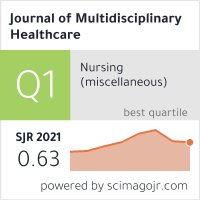
Cohort Study
Adding Chinese herbal medicines to routine treatment was found to be related to lower fracture risk in rheumatoid arthritis patients.
Liao HH, Livneh H, Chung YJ, Lin CH, Lai NS, Yen HR, Tsai TY
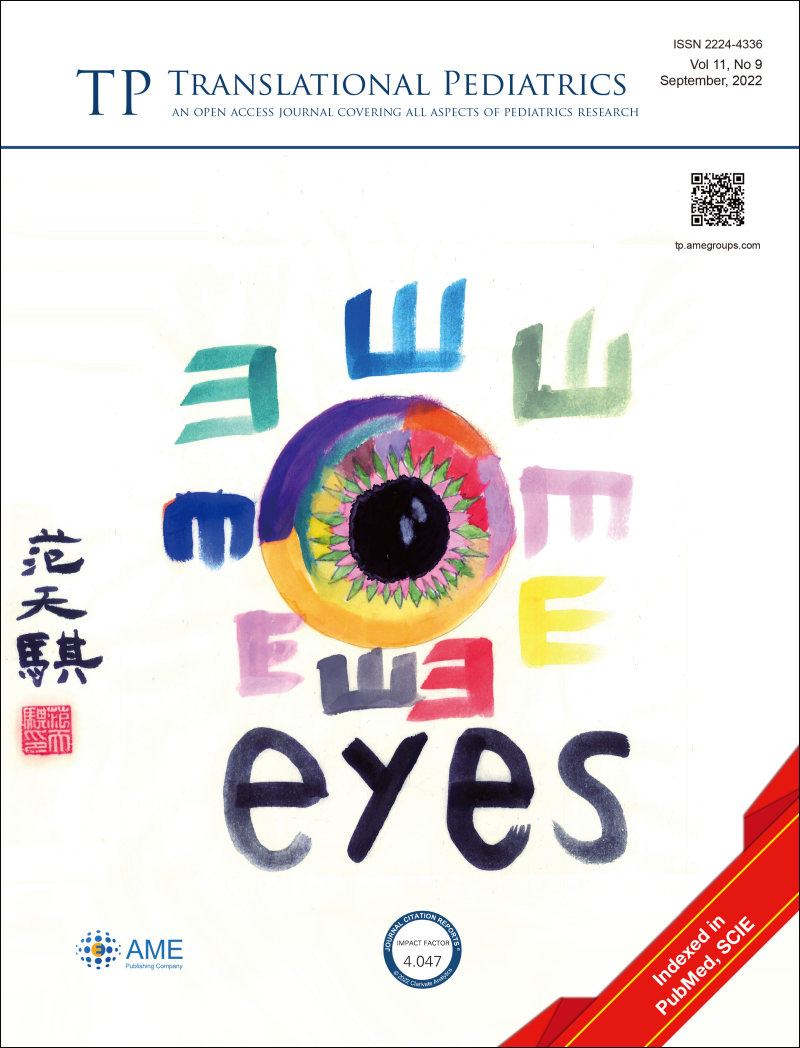
Review Article
Allergic rhinitis in children, according to traditional Chinese medicine, is interrelated with the functionality of lungs, spleen, and kidney and can be treated with combined Western and Chinese herbal medicines.
Liang J, Gu Q

Review Article
Chinese herbal medicines could alleviate chronic kidney disease symptoms by combating fibrosis, inflammation, oxidative stress, and encouraging repair and regeneration.
Shao M, Ye C, Bayliss G, Zhuang S
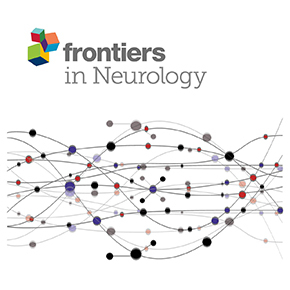
Systematic Review
Traditional Chinese herbal medicine shows promising efficacy in improving clinical symptoms and reducing recurrence of multiple sclerosis.
Seo Y, Jin C, Cho S-Y, Park S-U, Jung W-S, Moon S-K, Park J-M, Ko C-N, Cho K-H and Kwon S

Systematic Review
Chinese herbal medicine combined with conventional therapy may be effective and safe in the treatment of mild to moderate COVID-19.
Du X, Shi L, Cao W, Zuo B, Zhou A
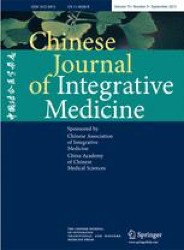
Systematic Review
Chinese herbal medicine presents beneficial effects in controlling disease activity and lowering glucocorticoid dosage in systemic lupus erythematosus patients.
Wang Y, Han M, Pedigo CE, Xie Z, Wang W, Liu J

Review Article
The autophagic-regulatory effects of Chinese herbal medicine are potentially therapeutic for allergic inflammatory diseases such as asthma.
Zhang Yun, Wang Xing, Zhang He, Tang Hongmei, Hu Hang, Wang Songping, Wong Vincent Kam Wai, Li Yuying, Deng Jun

Systematic Review
The addition of CHM to clomiphene may improve pregnancy rates.
Zhou K, Zhang J, Xu L, Lim CED
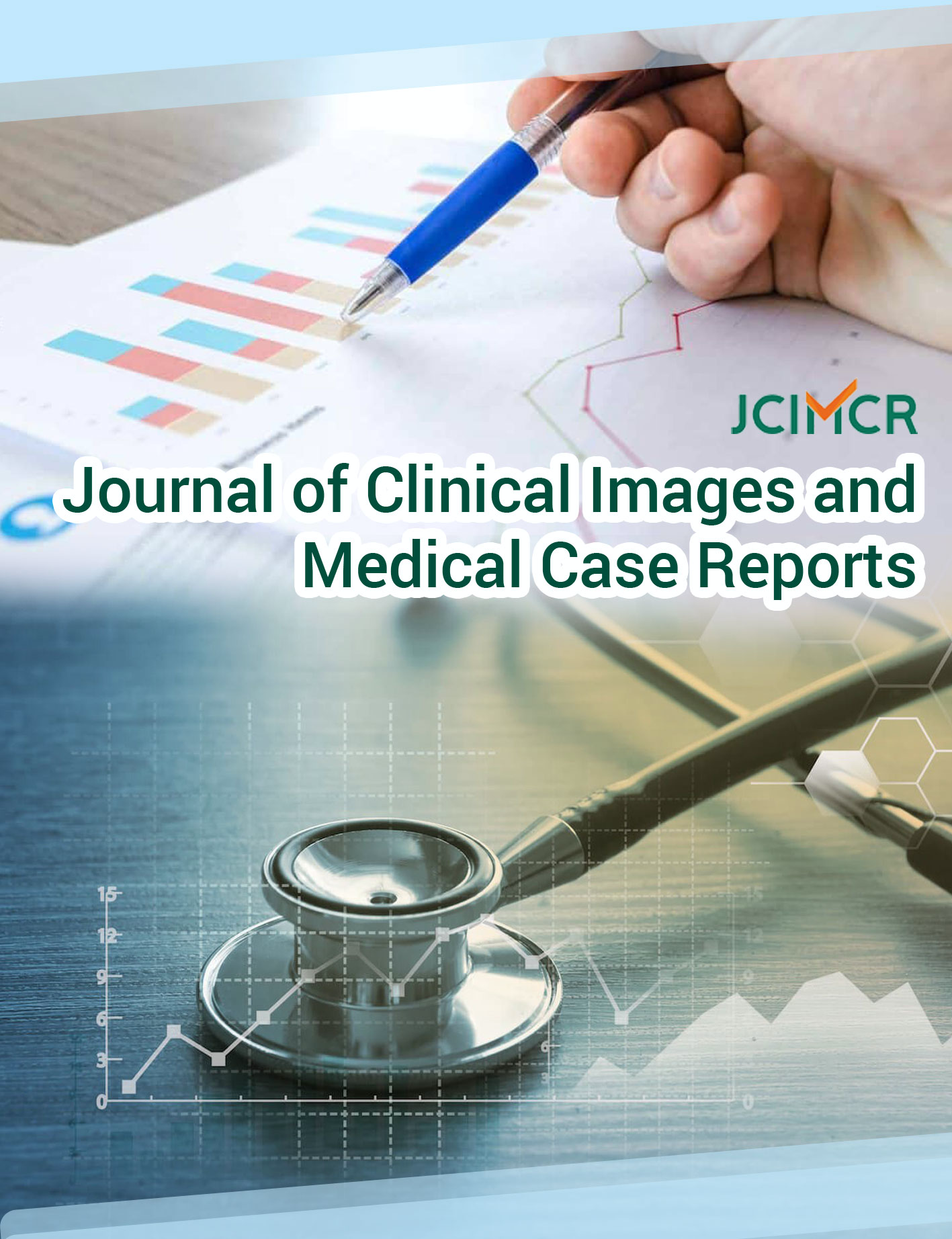
Systematic Review
Long Dan Xie Gan Decoction combined with valacyclovir appears to enhance the treatment of herpes zoster, improving pain intensity, and crust formation time.
Wang X, , Wu L, Hou Y, Ding S, Wang S, Zhang Y, Zhang G, , , , , ,

Systematic Review
Chinese herbal medicines or their components can potentially delay aging by regulating aging-related genes via different signaling pathways.
Wang L, Zuo X, Ouyang Z, Qiao P, Wang F

Systematic Review
Acupuncture, moxibustion and Chinese herbal medicines are the most commonly used complementary and alternative medicine in the treatment of female infertility.
Feng J, Wang J, Zhang Y, Zhang Y, Jia L, Zhang D, Zhang J, Han Y, Luo S

Review Article
Chinese herbal medicines may improve treatment for those with chronic kidney disease, due to their anti-inflammatory, antioxidative, anti-apoptotic, autophagy-mediated, and antifibrotic effects.
Zhao M, Yu Y, Wang R, Chang M, Ma S, Qu H, Zhang Y
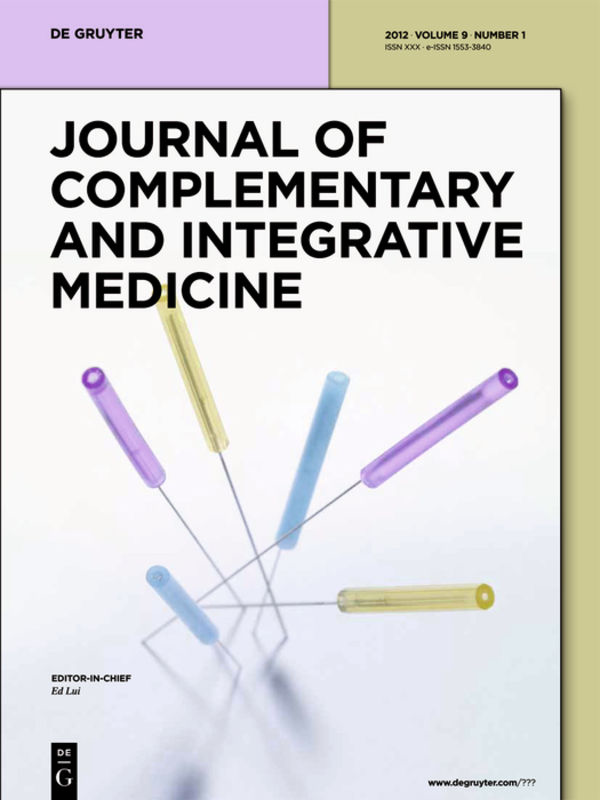
Systematic Review
Fennel intake decreased significantly the intensity of dysmenorrhea compared to placebo and was similar to non-steroidal anti-inflammatory drugs such as mefenamic acid.
Hadis Shahrahmani, Masumeh Ghazanfarpour, Nasim Shahrahmani, Fatemeh Abdi, Robert D. E. Sewell and Mahmoud Rafieian-Kopaei

Systematic Review
Chinese herbal medicine seems to be as effective as flunarizine in reducing the frequency of migraines in adults.
Lyu S, Zhang CS, Guo X, Zhang AL, Sun J, Lu C, Xue CC, Luo X

Systematic Review
In a meta-analysis of 14 trials with 1030 women, acupoint stimulation and Chinese Herbal Medicine were effective in improving menstrual cycles, perimenopausal symptoms, and sex hormone levels in comparison to Hormone Replacement Therapy.
Li Y, Xia G, Tan Y, Shuai J

Review Article
Juhua, the flower head of Chrysanthemum morifolium Ramat, possesses multiple medicinal properties and has a significant role in dietary herbal medicine in China.
Yuan H, Jiang S, Liu Y, Daniyal M, Jian Y, Peng C, Shen J, Liu S, Wang W

Review Article
Traditional Chinese medicine has unique advantages in relieving symptoms, shortening treatment time and reducing the development of severe viral pneumonia.
Xi S, Li Y, Yue L, Gong Y, Qian L, Liang T, Ye Y
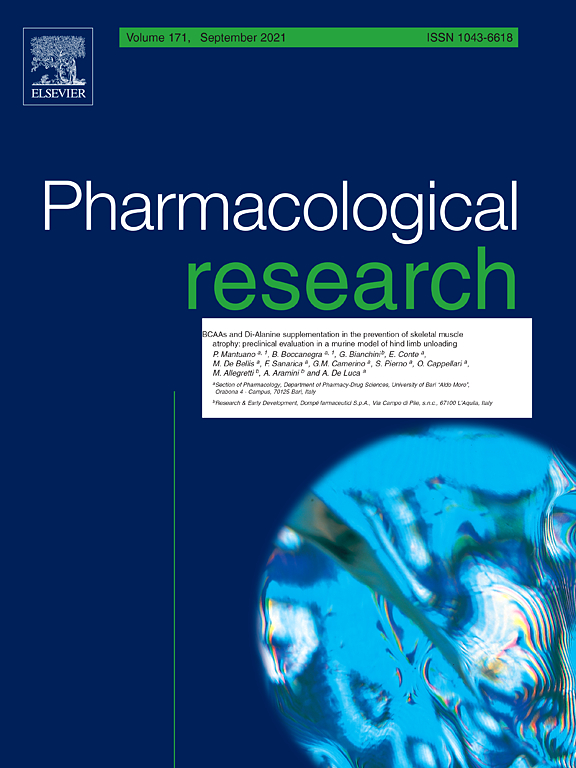
Systematic Review
Chinese herbal formulas could be used as potential candidates for treatment of COVID-19.
Xiong, X., Wang, P., Su, K., Cho, W. C., & Xing, Y.
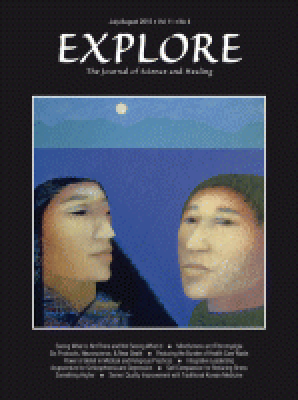
Systematic Review
Modified Tao-Hong Siwu Tang (MTST) appears more effective than non-steroidal anti-inflammatory drugs (NSAIDs), and a combination of Tao-Hong Siwu Tang with oral contraceptives (OCs) offers benefits over OCs alone for treating primary dysmenorrhea.
Ji HR, Park KS, Woo HL, Lee MJ, Yoon JG, Lee HJ, Hwang DS, Lee CH, Jang JB, Lee JM

Randomised Controlled Trial
Combining acupuncture via shu-stream acupoints with the Chinese herbal formulation Dang Gui Yin Zi presents a potentially effective treatment for Chronic Spontaneous Urticaria.
Qin Y, Guo J, Song P, Hou T, He Y, Han M, Yu Q, Lin W, Chen M, Su H

Review Article
Herbal medicines were shown to normalize female hormones, diminish male hormones, recover the estrous cycle, ameliorate insulin resistance, and improve lipid metabolism in PCOS.
Kwon Chan-Young, Cho Ik-Hyun, Park Kyoung Sun
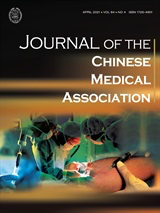
Clinical Study
Chinese herbal medicine might improve lower urinary tract symptoms in patients with benign prostatic hyperplasia.
Yeh HF, Li TF, Tsai CH, Wu PW, Huang YH, Huang WJ, Chen FJ, Hwang SJ, Chen FP, Wu TP
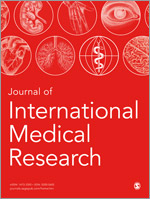
Systematic Review
For primary dysmenorrhoea, cinnamon/fennel/ginger effectively reduced pain intensity, and cinnamon shortened the duration of pain.
Xu Y, Yang Q, Wang X

Systematic Review
Compared with conventional Western medicine alone, Chinese herbal medicine plus antihypertensive drugs might be effective in reducing blood pressure levels and improving vascular endothelial function in patients with hypertension.
Ren W, Wang M, Liao J, Li L, Yang D, Yao R, Huang L
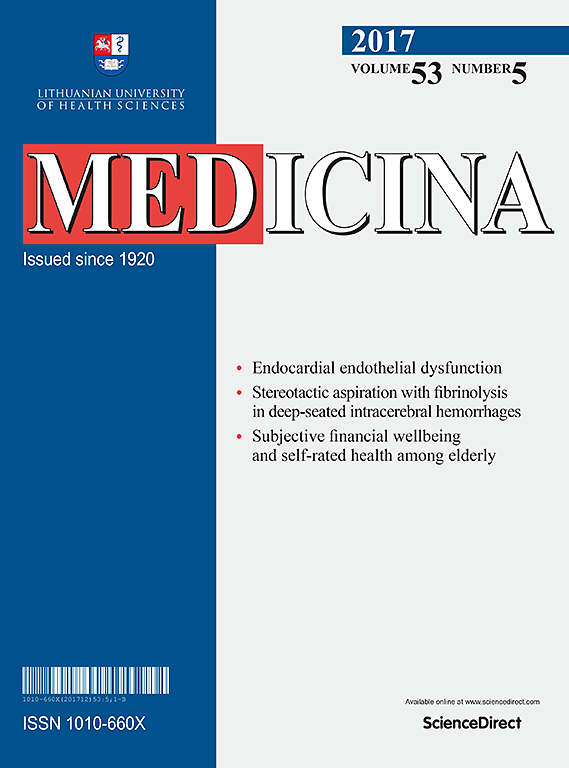
Cohort Study
Adding Chinese herbal medicines to conventional therapy could decrease subsequent stroke risk for atrial fibrillation patients.
Zheng LC, Livneh H, Chen WJ, Lin MC, Lu MC, Yeh CC, Tsai TY
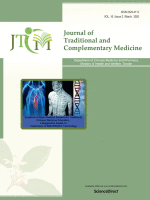
Cohort Study
Chinese herbal medicine usage in children with asthma can reduce their risk of hospitalization.
Lo PC, Lin SK, Lai JN
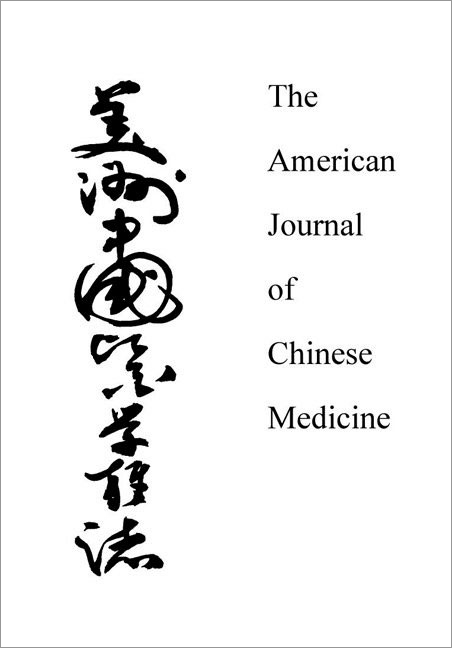
Systematic Review
Current evidence suggests that Chinese herbal medicine is an effective and safe treatment for spinal cord injury and could be treated as a complementary and alternative option with few side effects.
Zheng Y, Qi S, Wu F, Hu J, Zhong R, Hua C, Jiang D, Quan R

Cohort Study
Traditional Chinese Medicine when combined with Western methods, could improve survival rates in patients with colorectal cancer.
Yeh MH, Chiu HP, Wu MC, Koo M, Lin NW, Liao KK, Yeh CC, Li TM

Clinical Study
Tian Wang Bu Xin Dan can potentially alleviate symptoms of cancer-related insomnia similarly to cognitive-behavioral therapy.
Moon SY, Jerng UM, Kwon OJ, Jung SY, Lee JY, Yoon SW, Shin WC, Byun JI, Lee JH
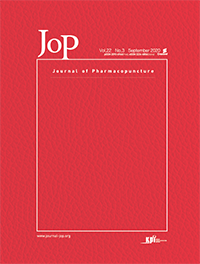
Systematic Review
Chamomile shows promise in alleviating premenstrual syndrome (PMS) symptoms.
Khalesi ZB, Beiranvand SP, Bokaie M
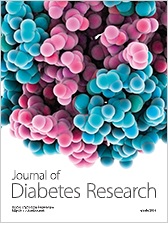
Review Article
Traditional Chinese medicine, especially Zuo Gui Wan, red raspberry leaves, and Orthosiphon stamineus, seems to control gestational diabetes effectively without reported toxicity.
Xu YXZ, Xi S, Qian X

Systematic Review
Range of herbs like Cinnamomum verum, Trigonella foenum-graecum L., and Vitex agnus-castus, which can potentially address various PCOS-related concerns such as menstrual irregularities, obesity, and insulin resistance.
Moini Jazani, A., Nasimi Doost Azgomi, H., Nasimi Doost Azgomi, A. et al.
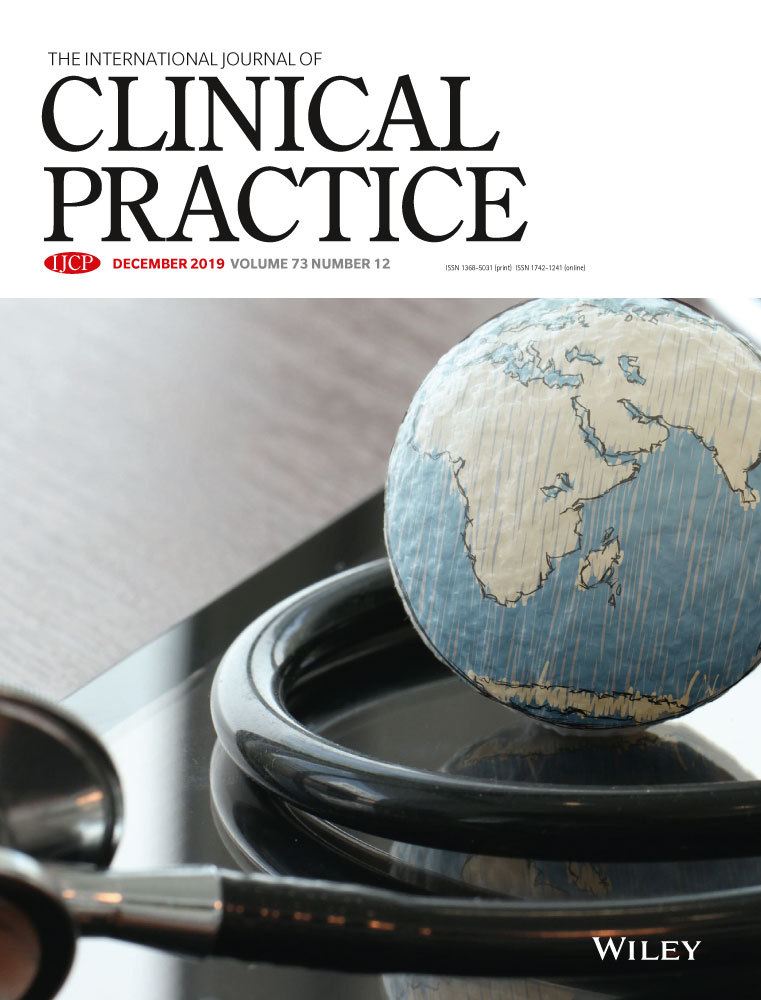
Systematic Review
Certain traditional herbal medicines used in east-Asia as adjuncts to conventional medications improved outcomes in acute and chronic asthma.
Allison Clyne,Angela Wei Hong Yang,Mingdi Li,Yutong Fei,Brian H May
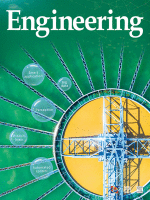
Review Article
In 2017, dozens of Chinese proprietary medicines were employed as rheumatoid arthritis treatments and resulted in good outcomes, according to the National Health Insurance Directory of China.
Hu-DanPana, YaoXiao, Wan-YingWang, Ru-TongRen,Elaine Lai-Han,Leung, LiangLiua

Review Article
Chrysanthemum, rich in unique chemical compounds, offers significant health benefits such as stress relief, cardio protection, immunity boost, improved eye health, and osteoporosis risk reduction.
SHAHRAJABIAN, M. H., SUN, W., ZANDI, P., CHENG, Q.
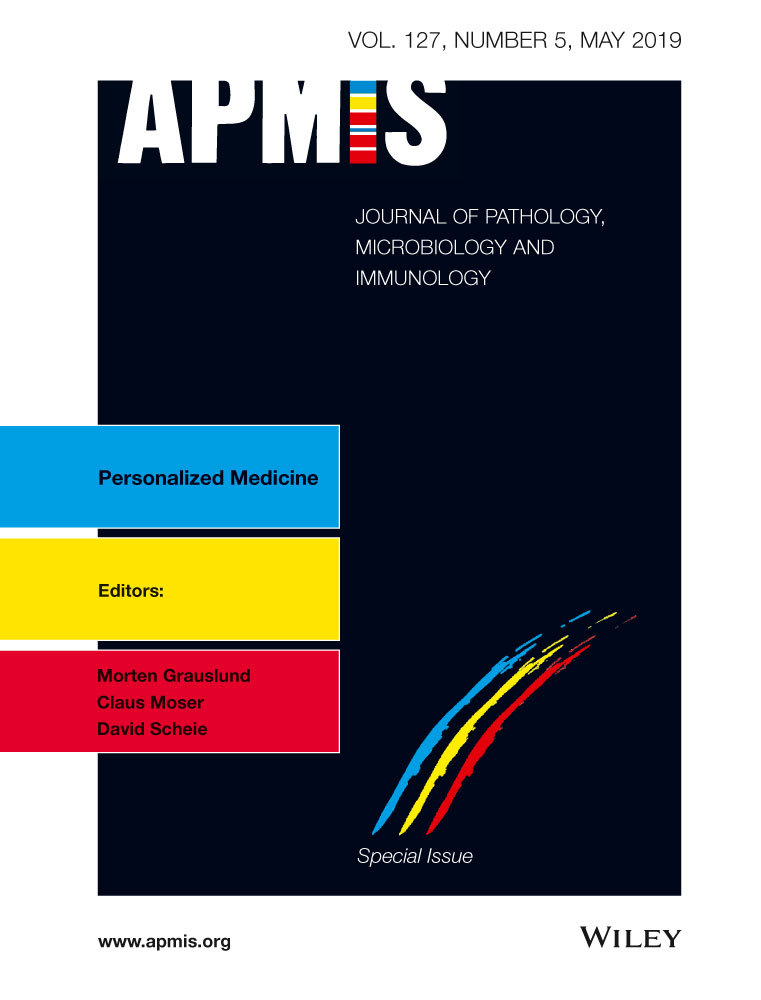
Review Article
Traditional Chinese medicine rapidly relieves the clinical symptoms caused by viral infection with a remarkable antifebrile effect.
Yuexia Ma, Ming Chen, Yali Guo, Jian Liu, Weitao Chen, Mengyue Guan, Yue Wang, Xuehui Zhao, Xu Wang, Haoyuan Li, Lingxin Meng, Yulong Wen, Yuguang Wang

Review Article
Traditional Chinese medicine has a generalized antiviral effect indicating the regulation on the direct inhibition of virus, body immunity, and inflammatory response control.
Yuexia Ma, Ming Chen, Yali Guo, Jian Liu, Weitao Chen, Mengyue Guan, Yue Wang, Xuehui Zhao, Xu Wang, Haoyuan Li, Lingxin Meng, Yulong Wen, Yuguang Wang

Review Article
Clinical efficacy can be improved by the combination of Chinese and Western medicine in the treatment of bacterial infectious diseases.
Yuexia Ma, Ming Chen, Yali Guo, Jian Liu, Weitao Chen, Mengyue Guan, Yue Wang, Xuehui Zhao, Xu Wang, Haoyuan Li, Lingxin Meng, Yulong Wen, Yuguang Wang

Review Article
Traditional Chinese medicine can restrain some infections induced by various drug-resistant bacteria.
Yuexia Ma, Ming Chen, Yali Guo, Jian Liu, Weitao Chen, Mengyue Guan, Yue Wang, Xuehui Zhao, Xu Wang, Haoyuan Li, Lingxin Meng, Yulong Wen, Yuguang Wang
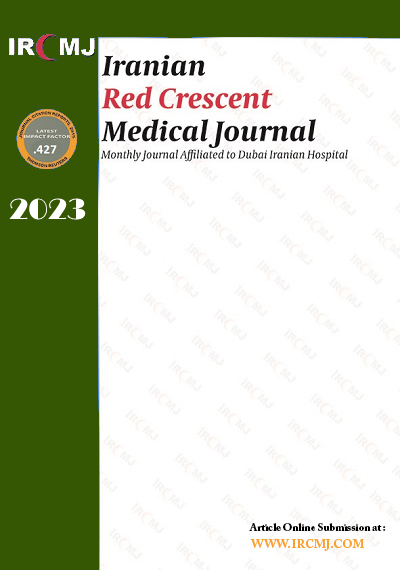
Randomised Controlled Trial
Peppermint oil capsules may significantly reduce the severity of premenstrual syndrome symptoms in reproductive-age women.
Agajani Delavar M, Ebrahimi S, Esmaeilzadeh S, Khamse A
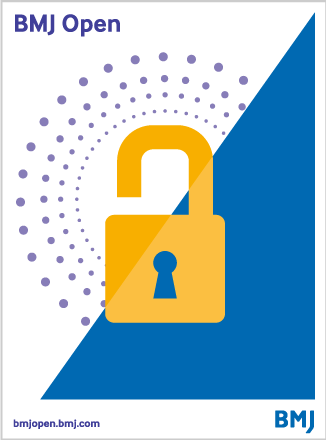
Systematic Review
Chinese herbal medicine may be effective and safe for treating diabetic kidney disease, although evidence quality varies.
Zhang L, Yang L, Shergis J, Zhang L, Zhang AL, Guo X, Qin X, Johnson D, Liu X, Lu C, Xue CC, Mao W

Systematic Review
Chinese herbal medicine in conjunction with conventional western medicine proved effective in improving symptoms in Parkinson's disease patients.
Jin XC, Zhang L, Wang Y, Cai HB, Bao XJ, Jin YY, Zheng GQ

Systematic Review
Existing trials show a positive impact of Xuefu Zhuyu decoction (XZD), a traditional herbal formula that treats primary dysmenorrhea.
Leem J, Jo J, Kwon CY, Lee H, Park KS, Lee JM

Systematic Review
Chinese herbal medicine improved depression symptoms and severity compared to antidepressants for postpartum depression.
Yang L, Di YM, Shergis JL, Li Y, Zhang AL, Lu C, Guo X, Xue CC

Review Article
Shu Di Huang, traditionally used in Chinese medicine, may effectively treat attention deficit hyperactivity disorder by rectifying neurodevelopmental abnormalities, neuronal apoptosis, and energy metabolism failures.
Yuan H, Yang M, Han X, Ni X

Systematic Review
Herbal medicines for labor induction show effectiveness
Zamawe C, King C, Jennings HM, Mandiwa C, Fottrell E

Systematic Review
Chinese herbal medicine combined with moxibustion might be beneficial for treating PCOS, and the treatment might improve the therapeutic effects of conventional western medications including clomiphene citrate, oral contraceptives, and/or metformin.
Kwon, Chan-Young, Lee, Boram, Park, Kyoung Sun
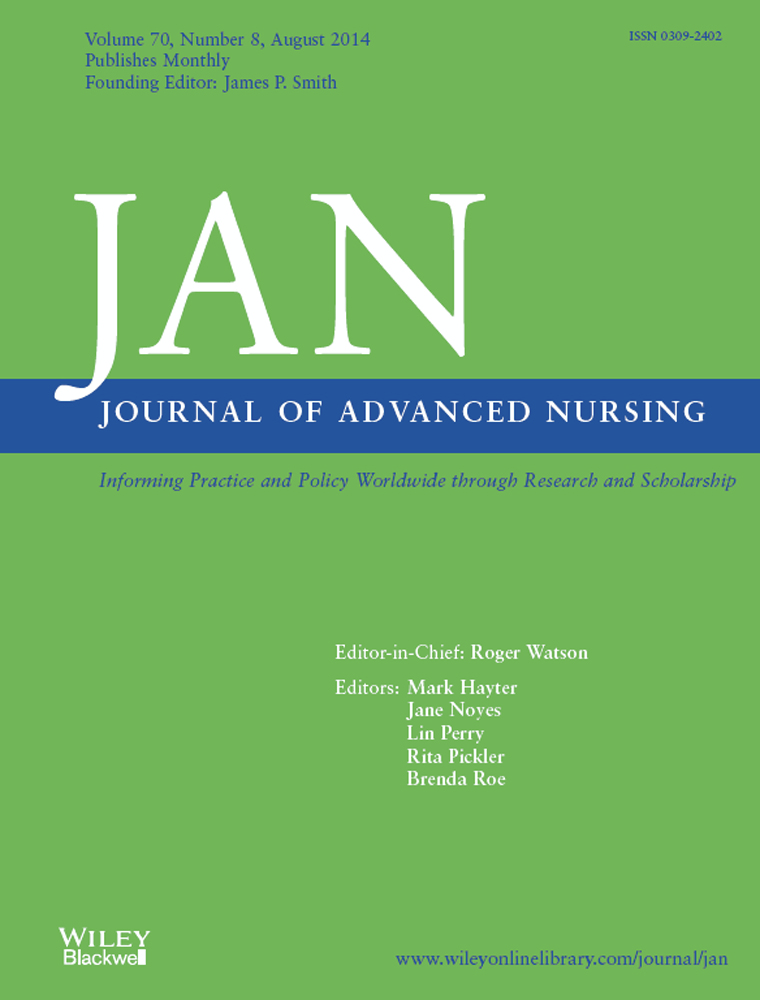
Systematic Review
Skin-patches of Chinese herbal medicine combined with Western medicine seemed to be more effective than Western medicine alone to reduce the pain scores of patients with acute gouty arthritis.
Wang HR, Fu Q, Liu Z, Li ML, Zhai SQ
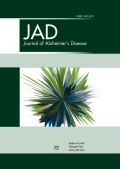
Systematic Review
Chinese herbal medicine as adjuvant therapy exerted an additive anti-vascular dementia benefit on Mini-Mental State Examination (MMSE) scores.
Xu, Qing-qing et al
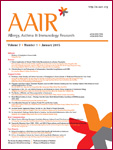
Systematic Review
Chinese herbal medicine tends to improve the quality of life of patients suffering from allergic rhinitis.
Zhang X, Lan F, Zhang Y, Zhang L

Systematic Review
Yu Ping Feng San, a Chinese herbal medicine, combined with pharmacotherapy could be effective for treating allergic rhinitis in adults.
Luo Q, Zhang CS, Yang L, Zhang AL, Guo X, Xue CC, Lu C
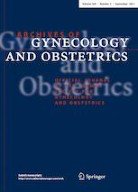
Systematic Review
Results support Wenjing decoction (a traditional Chinese medicine) clinical use in treating primary dysmenorrhea.
Gao L, Jia C, Zhang H, Ma C

Systematic Review
Traditional Chinese massage therapy can effectively treat asthma and significantly improve pulmonary function in children.
Ji Wu Xi-Wen Yang, and Ming Zhang

Systematic Review
There is a significant effect of Chinese herbal medicine for improving Expanded Disability Status Score, annual relapse frequency and the total clinical efficacy rate for multiple sclerosis compared with western conventional treatment.
Liang Song, Qi-hui Zhou, Hui-lin Wang, Feng-jiao Liao, Liang Hua, Hong-feng Zhang, Li-bo Huang, Yan Lin, Guo-qing Zheng

Animal Study
Gan Mai Da Zao decoction significantly enhances neuropsychiatric disease-related outcomes in animal models, irrespective of dose and concentration.
Lee HW, Kim SR, Jun JH, Ko BS

Randomised Controlled Trial
The combination of traditional Chinese medicine and endocrine therapy may be more effective in slowing prostate cancer progression and increasing patients' survival time.
Cao H, Mu Y, Li X, Wang Y, Chen S, Liu J
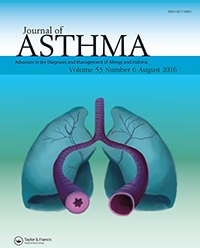
Systematic Review
Herbal medicines combined with routine pharmacotherapies improved asthma outcomes greater than pharmacotherapies alone.
Shergis JL, Wu L, Zhang AL, Guo X, Lu C, Xue CC
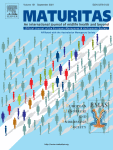
Systematic Review
Meta-analysis showed that Danggui Shaoyao San had superior effects compared to analgesics for treating primary dysmenorrhea.
Hye Won Lee, Ji Hee Jun, Ki-Jung Kil, Byong-Seob Ko, Choong Hwan Lee, Myeong Soo Lee
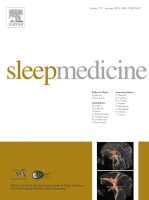
Systematic Review
Chinese herbal medicine was superior to placebo and benzodiazepine drugs and was superior to benzodiazepines and psychotherapy alone as an adjunct therapy in terms of subjective sleep quality and quantity and safety.
Xiaojia Ni, Johannah Linda Shergis, Xinfeng Guo, Anthony Lin Zhang, Yan Li, Chuanjian Lu, Charlie Changli Xue

Systematic Review
Chinese herbal medicine may provide an effective treatment during the acute phase of UTI and when given prophylactically to prevent recurrence in the six months following treatment.
Flower A, Wang LQ, Lewith G, Liu JP, Li Q.

Systematic Review
Our review suggests that management of female infertility with Chinese herbal medicine can improve pregnancy rates 2-fold within a 3-6 month period compared with Western medical fertility drug therapy.
Ried K.

Systematic Review
TCM pattern-based treatments for depression frequently use Xiao Yao and Chai Hu Shu Gan decoctions, with Bai Shao and Chai Hu herbs common across different TCM patterns.
Yeung WF, Chung KF, Ng KY, Yu YM, Zhang SP, Ng BFL, Ziea ETC
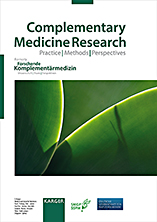
Systematic Review
There is strong evidence for Andrographis paniculata (Chuan Xin Lian) being significantly superior to placebo in alleviating the frequency and severity of cough symptoms.
Wagner L., Cramer H., Klose P., Lauche R., Gass F., Dobos G, Langhorst J.

Systematic Review
There are potential benefits of herbal medicine in addressing the complex symptoms of PCOS, supported by both pre-clinical and clinical evidence.
Susan Arentz, Jason Anthony Abbott, Caroline Anne Smith & Alan Bensoussan
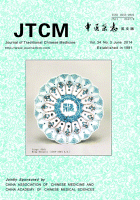
Systematic Review
Chinese herbal medicine combined with western medicine used to treat subacute thyroiditis may improve clinical symptoms and signs, reduce relapse rate, and alleviate the side effects of hormones.
Hui Luo, Meng Lü, Xiaohua Pei, Zhongyuan Xia

Systematic Review
Acupuncture and herbal medicine show promise in alleviating premenstrual syndrome and premenstrual dysphoric disorder symptoms, with over 50% relief and proven safety.
Jang SH, Kim DI, Choi MS

Systematic Review
Guizhi Fuling formula shows potential in treating uterine fibroids.
Chen NN, Han M, Yang H, Yang GY, Wang YY, Wu XK, Liu JP
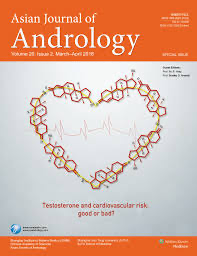
Systematic Review
Chinese herbal medicine appears to be more effective than Western medication in improving quality of life and reducing prostate volume in benign prostatic hyperplasia patients.
Ma CH, Lin WL, Lui SL, Cai XY, Wong VT, Ziea E, Zhang ZJ

Systematic Review
Chinese herbal medicine may help in functional recovery in gout patients, while safely controlling serum uric acid level and inflammation severity.
Li XX, Han M, Wang YY, Liu JP

Review Article
Chinese herbal medicine as an adjunct therapy can potentially alleviate symptoms of Parkinson's Disease and is typically well-tolerated by patients.
Wang Y, Xie CL, Lu L, Fu DL, Zheng GQ

Systematic Review
Acupuncture shows potential for reducing dysmenorrhoea scores in endometriosis patients.
Zhu X, Hamilton KD, McNicol ED
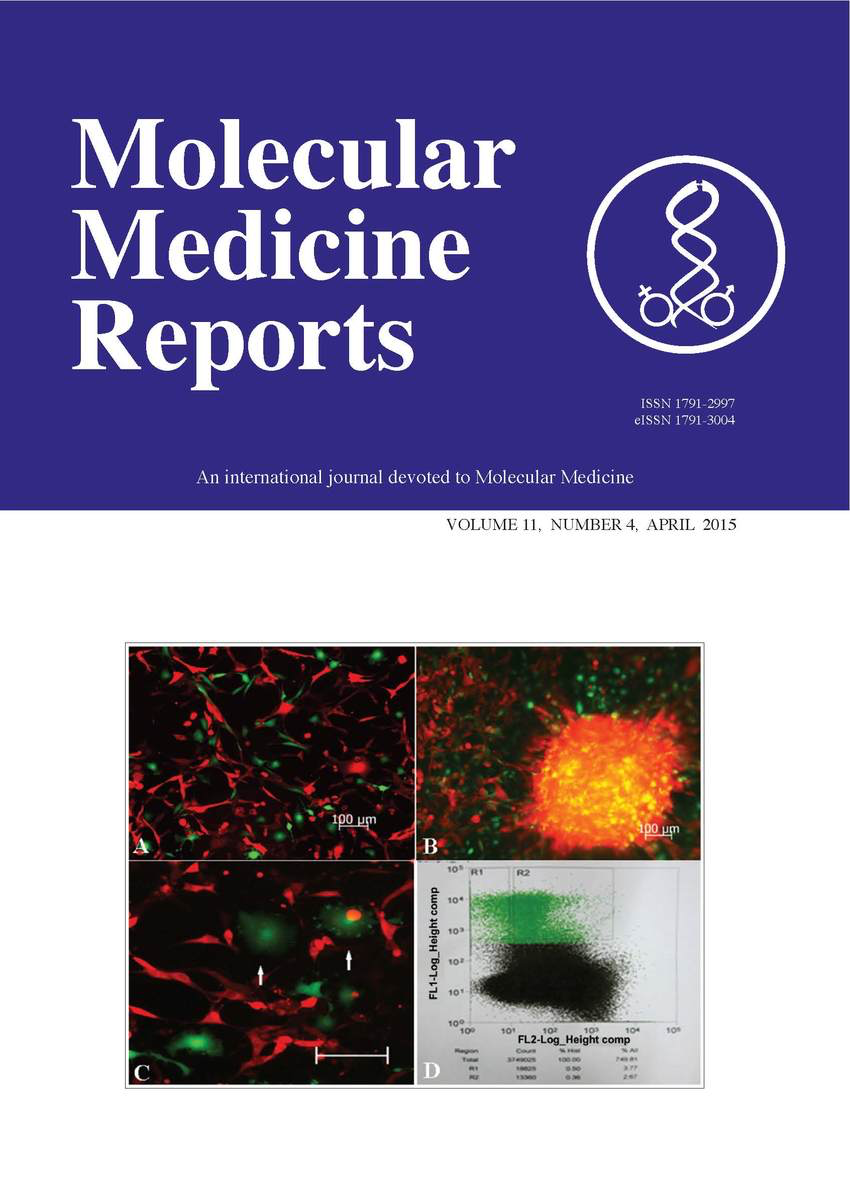
Theoretical Article
Chamomile, with its numerous terpenoids and flavonoids, has a vast range of medicinal uses and is being developed as a human health promoting therapeutic agent.
Gupta
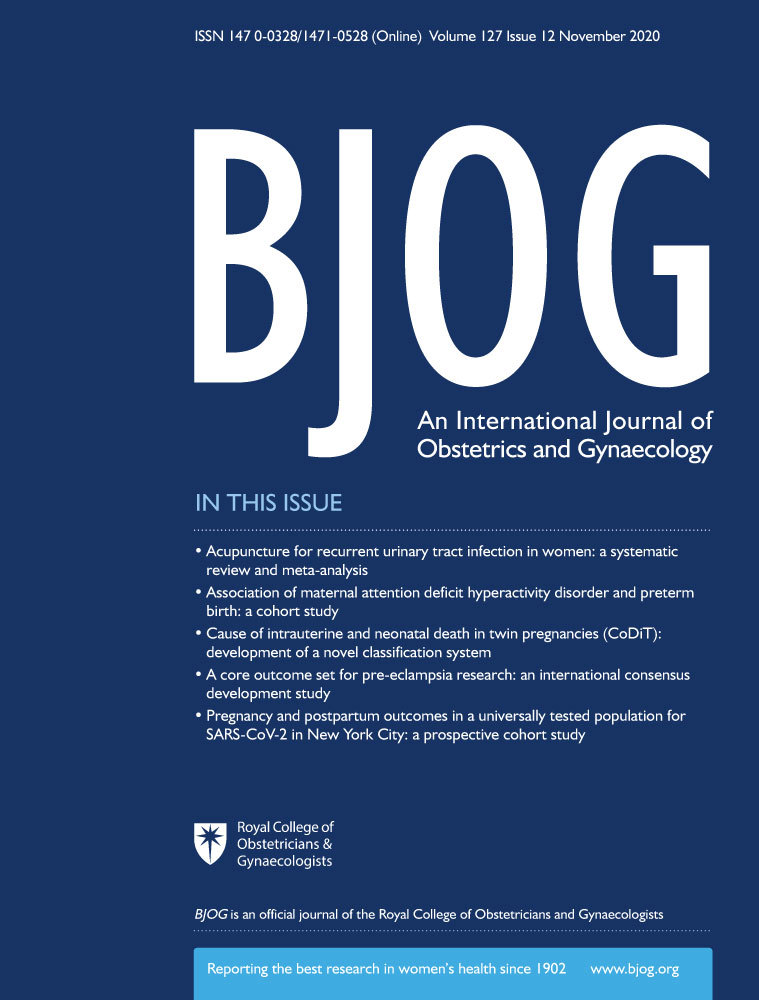
Systematic Review
Acupuncture shows promise for reducing pain in primary dysmenorrhea compared to pharmacological treatment or herbal medicine.
Cho SH, Hwang EW

Randomised Controlled Trial
Gui-zhi-fu-ling-wan, a herbal therapy, depicts to be a viable alternative to hormone replacement therapy for treating hot flashes in post-menopausal women experiencing coldness in lower extremities.
Ushiroyama T, Ikeda A, Sakuma K, Ueki M
Executive Summary
Write an executive summary in the form of a blog article on the topic of "Research into Chinese medicine treatment for Herbal Medicine" summarising the research below and using language that can be easily understood by patients and avoiding medical jargon using a professional and caring tone of voice.
Write an executive summary in the form of a blog article on the topic of "Researched Chinese medicine treatments for Herbal Medicine" summarising the research below in an objective and easy to understand way, and using language that can be easily understood by patients. Group the article into Chinese medicine treatments first, followed by nutrition and other treatments. Avoid using medical jargon and use a professional and caring tone of voice.
Write me a concise but easy to understand executive summary on the topic of "Chinese medicine treatments for Herbal Medicine" based on the following research that I will give you. Your summary should be 2 paragraphs long in Australian English spelling and include references to the studies.
A Meta-Analysis published in 2023 in the journal PLOS One found that Oral Chinese herbal medicines appear to enhance recovery when used as supplements to conventional treatment after sinus surgery. This study systematically reviews and conducts a meta-analysis of randomised controlled trials, gathered from a wide range of nine databases and clinical trial registries, to evaluate the impact of orally administered Chinese herbal medicines (CHMs) on the post-surgical management of chronic rhinosinusitis. The participants across these trials included adults and children diagnosed with sinusitis or rhinosinusitis, who had undergone surgery. The added interventions were orally consumed CHMs post-surgery in tandem with traditional post-surgery management. The control groups received only the conventional management without CHMs. The results from a variety of measures including Sino-Nasal Outcome Test, visual analogue scales, various computed tomography scores, and mucociliary transport rates showed greater improvements in the group consuming oral CHMs in addition to the post-surgery treatment, versus the control. Particularly, enhancements were noticeable at follow-up stages after the end of treatment. However, the reporting of adverse events was incomplete across the trials. The study also found that the quality of the studies and their reporting varied, with many studies not being blinded and some results showing substantial heterogeneity.
A Review Article published in 2023 in the journal Chinese Herbal Medicines found that Chinese herbal medicines (CHMs) possess multiple advantages, including multiple targets, pathways, and low toxicity, for the treatment of prostate cancer. The research team undertook an in-depth review of experimental research and clinical practices related to the use of CHMs for prostate cancer treatment, with the data being sourced from PubMed, Embase, and Web of Science. The focus of the review was on recent studies published within the last five years. The research identified five CHM formulas and six single CHM extracts, along with 12 CHM-derived compounds. The research findings demonstrated that CHMs induced apoptosis, autophagy, and cell cycle arrest in prostate cancer cells, and concurrently suppressed angiogenesis, proliferation, and cell migration. The CHMs also displayed efficacy in overturning drug resistance and in enhancing anti-tumor immunity. The modes of action were identified as the phosphatidylinositol 3-kinase/protein kinase-B/mammalian target of rapamycin, androgen receptor, epidermal growth factor receptor, and Wnt/beta-catenin signaling pathways which are known to play key roles in the development of prostate cancer. Additionally, the researchers discussed the benefits of CHMs in treating hormone-sensitive and castration-resistant prostate cancer.
A Review Article published in 2023 in the journal Chinese Herbal Medicines found that Chinese herbal medicines could potentially relieve ulcerative colitis by moderating the gut microbiota and intestinal immunity loop. The study emphasizes on the possible use of Chinese herbal medicines, which include single herbs, herbal formulas and derived constituents, in treating ulcerative colitis (UC), a recurring inflammatory bowel disease. With a focus on how these medicines interact with and modify the gut microbiota, the mechanism involves regulating the intestinal homeostasis to counter UC. It deals with balancing microbial dysbiosis, or the imbalance of microbes in the body, and abnormal gut immunity, two key initiators of inflammatory responses in UC. The paper reviews several clinical trials which have been conducted, all exhibiting the effectiveness of Chinese herbal medicines on patients diagnosed with UC. In the trials, these derived substances have shown a protective effect against UC, offering the potential possibility of them being explored as conventional methods of UC treatments in the future. Not every trial has resulted in absolute success, but the overall results are promising and indicate a robust potential direction for UC treatment science.
A Meta-Analysis published in 2023 in the journal Quality Assurance and Safety of Crops & Foods found that The traditional Chinese herbal medicine Shaoyao Gancao Tang (SG-Tang) may be an effective and safe alternative treatment to relieve Restless Leg Syndrome. The methodology used for this study involved a systematic review and meta-analysis of Randomized Clinical Trials (RCTs) assessing the efficacy and safety of SG-Tang treatment for Restless Leg Syndrome. Databases such as the Cochrane Library, PubMed, EMBASE, Web of Science, Chinese Biological Medicine Database, China National Knowledge Infrastructure, Wanfang Database, and VIP Information Database were searched. The primary and secondary outcome measurements looked at were the total effective rate, the International Restless Legs Syndrome Study Group Rating Scale for Severity of Restless Legs Syndrome, the Pittsburgh Sleep Quality Index, and the incidence of adverse events. The results of the study indicated that SG-Tang treatment led to significant improvements compared to conventional medications; it increased the total effective rate and lifted scores on the Severity of Restless Legs Syndrome and Sleep Quality Indices, while also lessening the incidence of adverse events. However, these conclusions should be interpreted with caution due to the limited data and the methodological quality of the included studies.
A Systematic Review published in 2022 in the journal PLOS One found that Chinese Herbal Medicines may help with chronic sinusitis and acute rhinosinusitis symptoms with LDXGT and modified CEZS working well, especially for CRS. The review assessed the effectiveness of Chinese herbal medicines (CHMs) in treating chronic rhinosinusitis (CRS) and acute rhinosinusitis (ARS). It found that certain CHMs showed potential in improving CRS symptoms and measures related to sinus health, with the best evidence for LDXGT and modified CEZS formulas. However, more blinded randomized controlled trials are needed to confirm these findings.
A Systematic Review published in 2022 in the journal Frontiers in Pharmacology found that Chinese herbal medicine (CHM) improved AD symptoms but had no significant impact on patients' quality of life or IgE levels suggesting CHM's potential as an AD treatment with further research. CHM showed benefits in improving AD symptoms, such as itching and skin appearance, compared to placebos. However, it didn't significantly affect patients' quality of life or IgE levels. CHM was safe, with only minor side effects. These findings suggest CHM could be a useful treatment for AD, but more standard guidelines are needed due to variations in herbal ingredients and dosages in different studies.
A Systematic Review published in 2022 in the journal Frontiers in Neuroscience found that Chinese herbal medicine shows promising and safe outcomes in relieving functional dyspepsia symptoms and associated psychological disorders. The methodology for this research involved a comprehensive search across various libraries and databases, such as PubMed, Embase, Cochrane Library, Web of Science, and various Chinese data sources, seeking randomized controlled trials where functional dyspepsia was treated with Chinese herbal medicine. The aim was to assess the efficacy and safety of this type of treatment for functional dyspepsia. Two researchers independently conducted each stage of the process, from searching the sources, screening the documents, extracting data, and assessing risk biases within the included studies. They used RevMan 5.4 software to do a meta-analysis of the selected research materials. The discussion of their findings showed that treatment with Chinese herbal medicine significantly alleviated the symptoms of functional dyspepsia, compared to both a placebo group and a group treated with traditional prokinetic agents and flupentixol melitracen. Patients treated with Chinese herbal medicine reported higher total effective rates and lower total symptom scores, along with smaller depression and anxiety scores. The symptoms of functional dyspepsia, in this case, were improved more successfully with Chinese herbal medicine than with other treatment types, without any significant adverse reactions.
A Review Article published in 2022 in the journal Phytomedicine found that Chinese Herbal Medicine Prescriptions (CHMPs) have demonstrated to be potentially effective in managing Inflammatory Bowel Disease (IBD) with a comprehensive, holistic approach. In their methodology, the authors reviewed both preclinical and clinical researches to evaluate the effectiveness of CHMPs in treating IBD. They performed screenings of articles that highlighted the use of CHMP as a treatment option for IBD, giving them an insight into the complexity of the disease and the sophistication of CHMP treatments. Subsequently, they conducted an umbrella review of multiple meta-analyses linked to CHMPs to comprehend the efficacy of these herbal prescriptions in a clinical setting; they narrowed down from 1174 records to 12 substantial references for the review. In discussing their results, the authors analyzed a variety of 14 CHMPs that have a historical usage background and discussed their respective mechanisms of action. They delve into the inherent characteristics of the herbs used to provide a comprehensive understanding of the CHMPs. Recognizing the holistic nature being integral to CHMP, the authors discussed how the implementation of omics, studying the gut microbiome, and network pharmacology can enhance the understanding of CHMPs' bioactions in treating IBD.
A Systematic Review published in 2022 in the journal Frontiers in Pharmacology found that Chinese herbal medicine shows evident efficacy in treating coronary heart disease patients with anxiety or depression, notably improving symptoms of angina pectoris. Method: The study was conducted through a systematic approach, wherein literature search was performed based on certain screening studies. Information was extracted by two researchers who independently assessed the quality of the articles. These articles covered numerous studies concerning the active ingredients of Chinese herbal medicine utilized for treating coronary heart disease accompanied by anxiety or depression. The analysis of this data was performed through network pharmacology. Results: According to 32 chosen studies, Chinese herbal medicine was found to be markedly beneficial in treating anxiety or depression in patients who also had coronary heart disease. This was true in comparison to blank control groups, and the efficacy of Chinese herbal medicine appeared not to be inferior to that of Western medicine. Chinese herbal medicine also significantly enhanced angina stability. Observations after usage of Chinese herbal medicine demonstrated similar trends in terms of angina frequency and electrocardiogram analysis. From the network pharmacology viewpoint, a set of certain compounds were found to possess the greatest correlation to the pathological targets of coronary heart disease, anxiety, and depression. Anti-damage or apoptosis, anti-inflammation, oxidative stress reduction, and maintaining neurotransmitter homeostasis were believed to be the principal functional mechanisms.
A Systematic Review published in 2022 in the journal Journal of Ethnopharmacology found that Chinese herbal medicine has shown effectiveness in treating amenorrhea caused by antipsychotic drugs, with an overall treatment effectiveness rate of 0.91, but the duration of treatment is relatively long, and further research is required to explore its application in this context. The passage presents a meta-analysis of traditional Chinese herbal medicine for treating amenorrhea caused by antipsychotic drugs. Chinese herbal medicine was found to be effective, with an overall success rate of 0.91, but the treatment duration was often lengthy, exceeding three months. Commonly used herbal remedies included Danggui, Chuanxiong, Taoren, Honghua, Gancao, Fuling, Baizhu, Xiangfu, Chaihu, Shudihuang, and Baishao. The study suggests that Chinese herbal medicine can be a viable option for managing this condition, but further research is needed to understand its mechanisms and optimize treatment approaches.
A Systematic Review published in 2022 in the journal Cochrane Database of Systematic Reviews found that Chinese herbal medicines combined with antithyroid drugs may offer benefits in lowering relapse rates, reducing the incidence of adverse effects, relieving symptoms, improving thyroid antibody status and thyroid function. The results suggest that traditional Chinese herbal medicines added to other routine treatment have a therapeutic potential for people with hyperthyroidism. However, due to methodological limitations, we could not identify a well‐designed trial to provide strong evidence for Chinese traditional herbal medicine in the treatment of hyperthyroidism. Thus, we currently cannot recommend any single preparation or formulation for clinical use.
A Review Article published in 2022 in the journal Chinese Medicine found that Chinese herbal medicine interventions, particularly those based on the Bai-Tou-Weng-Tang and Shen-Ling-Bai-Zhu-San formulas, show promise in treating Ulcerative Colitis. This study analyzed Ulcerative Colitis clinical trials that used Chinese Herbal Medicine (CHM) interventions by systematically searching seven electronic databases for articles published in English and Chinese until November 25, 2020. The focus was on different CHM treatments, including both single herbs and CHM formulas. Descriptive statistics were utilized to portray the characteristics of these studies, along with collecting commonly Chinese Medicine (CM) patterns of UC and frequently used CHM herbs and formulas. The data from a total of 2311 studies were compiled, most of which were Randomized Controlled Trials (RCTs) that utilized CHM formulas. Findings revealed that the most commonly reported CM pattern in UC was 'Large Intestine Dampness-Heat', with 'Spleen Deficiency' being the basic CM pattern-type reported. Top CHM treatment formulas included Bai-Tou-Weng-Tang and Shen-Ling-Bai-Zhu-San. The most frequently used single medicinals were Huang Lian and Bai Zhu. Common Western medicine compounds used in tandem with CHM treatments were Sulfasalazine and Mesalazine.
A published in 2022 in the journal Journal of Ethnopharmacology found that Xiang Fu, a traditional Chinese herbal medicine, shows significant antidepressant effects. The study reviewed the major antidepressant mechanisms and clinical applications of Cyperi Rhizoma, known as CR. It aimed to evaluate the pharmacological effects and the chemical compositions associated with these effects. The authors underwent an extensive literature search using "Cyperus rotundus L." as the search term across multiple electronic databases including Web of Science, ScienceDirect, and PubMed. In discussing the results, the researchers found that CR has broad application in alleviating symptoms related to stagnation of Qi, such as issues with the liver, stomach, and bowels, common in different countries. They identified the effective constituents of CR, including Aqueous extract, EtOH extract, essential oil, total oligomeric flavonoids, and five other extracts. These exhibited various pharmacological activities, such as antibacterial, antioxidant, neuroprotective, antihemolytic, and anti-inflammatory effects. Notably, specific components like α-cyperone and nootkatone showed antidepressant effects. Through synthesizing this scientific information, they concluded that CR holds potential as a herbal medicine to develop antidepressant drugs with fewer side effects.
A Systematic Review published in 2022 in the journal Journal of Isfahan Medical School found that Among the mentioned plants, castor oil and date fruit have more evidence in cervical ripening and onset of labor. 16 articles that met the inclusion criteria were reviewed. Meta-analysis was only possible on castor oil and date fruit. The chance of spontaneous onset of labor in was 5.760 and 2.205 times the castor oil and date groups, respectively. Moreover, the increase in bishop score in castor oil group was 2 times higher than the control group. The results of funnel plot and Egger test found no evidence of publication bias (P = 0.710). Peganum, Sisymbrium, chamomile, and saffron were effective in cervical ripening and onset of labor. Evening primrose was effective on Bishop score, but had no effect on spontaneous onset of labor. Red raspberry leaves were not effective in spontaneous onset of labor.
A Cohort Study published in 2022 in the journal International Journal of Urology found that Chinese herbal medicine can significantly reduce the risks of complications and need for surgery associated with benign prostatic hyperplasia. The methodology of the retrospective cohort study involved analyzing data from Taiwan's National Health Insurance Research Database, covering the period between 2001 to 2013. 4142 patients newly diagnosed as having benign prostatic hyperplasia were divided into Chinese herbal medicine users and non-users. To compare these groups, they employed 1:1 propensity score matching, and the risk of complications related to benign prostatic hyperplasia was evaluated using the Cox proportional hazard model. The results showed that during the study period, the risk of complications related to benign prostatic hyperplasia was considerably lower in the Chinese herbal medicine group compared to the non-Chinese herbal medicine group, even when other variables were controlled for. The Chinese herbal medicine users had a significantly lower risk of urinary tract infection and urine retention. Plus, the Chinese herbal medicine users experienced a lower incidence rate of surgery related to benign prostatic hyperplasia and enjoyed a longer surgery-free interval than non-Chinese herbal medicine users. Among the Chinese herbal medicine, Salviae miltiorrhizae and Ji-Sheng-Shen-Qi-Wan were prescribed the most by traditional Chinese medicine practitioners.
A Systematic Review published in 2022 in the journal Evidence-Based Complementary and Alternative Medicine found that Traditional Chinese medicine, including acupuncture, can provide superior pain relief and faster recovery for HIV-related Herpes Zoster compared to regular drugs. The review began by searching nine electronic databases for randomized controlled trials focused on the use of traditional Chinese medicine in treating HIV-associated Herpes Zoster. Two independent authors extracted data on interventions and outcomes, and the Cochrane risk-of-bias tool was used to evaluate the quality of the trials. Meta-analyses were subsequently performed using specific software. Results of the review showed that in general, the use of Chinese herbal medicine resulted in lower pain intensity and shorter herpes-related pain duration. Additionally, patients treated with this type of medicine and combined treatments recorded lower incidences of postherpetic neuralgia. The cure rate, defined as the complete absence of pain and herpes, also significantly improved with acupuncture and Chinese herbal medicine, compared to regular drugs. Notably, four trials reported on side effects, and no severe adverse events were mentioned.
A Systematic Review published in 2022 in the journal Frontiers in Pharmacology found that Xiao Yao San can improve symptoms and reduce recurrence rates in patients with disorders of gut-brain interaction. The paper's methodology involved a meta-analysis of randomized controlled trials found in seven databases, up until November 22, 2021. The trials, which totaled 48 all together, were included to determine the efficacy of Xiao-Yao-San in treating disorders of gut-brain interaction (previously known as functional gastrointestinal disorders). A range of measures, including therapeutic efficacy, symptom score, Self-Rating Anxiety Scale score, Self-Rating Depression Scale score, and the recurrence rate, were analysed using both random-effects and fixed-effects models, as well as trial sequential analysis. In terms of results, Xiao-Yao-San showed a marked improvement in the effective rate of managing disorders of gut-brain interaction compared to western drugs, both when used alone and in combination with western medicine. The paper also found the treatment notably reduced symptom scores, anxiety scores, and depression scores for patients with the disorder. Further, instances of recurrence were also reduced. Overall, Xiao-Yao-San was well tolerated and no serious adverse events were reported in any of the trials included in this analysis.
A Cohort Study published in 2021 in the journal Journal of Multidisciplinary Healthcare found that Adding Chinese herbal medicines to routine treatment was found to be related to lower fracture risk in rheumatoid arthritis patients. This is the largest population-based cohort study based on Taiwan's national health database designed to determine the association between the use of CHMs and the risk of incident fracture in RA patients. Longer duration of incorporating CHMs into routine treatment for RA patients was found to significantly reduce the risk of fracture by 53%. Results of this study may serve as a reference to help healthcare providers when planning and implementing therapeutic interventions that seek to improve the overall health of patients with RA. Further prospective randomized trials are recommended to clarify whether the association revealed in this study supports a causal link.
A Review Article published in 2021 in the journal Translational Pediatrics found that Allergic rhinitis in children, according to traditional Chinese medicine, is interrelated with the functionality of lungs, spleen, and kidney and can be treated with combined Western and Chinese herbal medicines. The methodology of this study was based on a review of both traditional Chinese and Western medical theories and practices. Chinese theory postulates that BiQiu, or allergic rhinitis in children, is primarily related to a congenital deficiency in vital qi, dysfunction of the lungs inhibiting nose orifices, and a deficiency of spleen and kidney leading to lung qi deficiency. The review looked into herbal monomers and compounds of Chinese herbal medicines as potential treatments for allergic rhinitis, while also considering the impact of external factors like the cold and inadequate diet. The review highlighted some of the effects and shortcomings of Chinese herbal medicines used alongside Western medicines for treating allergic rhinitis. Particularly, it focussed on how the unique perceptions of life science of the human body from both Eastern and Western cultures can be brought together for a comprehensive method of treatment. The study also outlined future trends of research to enhance this combined treatment approach.
A Review Article published in 2021 in the journal Frontiers in Pharmacology found that Chinese herbal medicines could alleviate chronic kidney disease symptoms by combating fibrosis, inflammation, oxidative stress, and encouraging repair and regeneration. The study's methodology consisted of both clinical and experimental approaches. It started with an examination of an array of traditional Chinese herbs. The criteria for considered herbs were their clinical efficacy, frequency of use in treating chronic renal disease, and a well-studied mechanism of action. Five herbs, namely, Tanshinone II A, Salvianolic acid A & B, Triptolide, Tripterygium glycosides and a monomer from Kudzu root, made the cut after having met the set criteria. The results showed that these Chinese herbs were found to possess pharmaceutical properties that were effective against fibrosis, inflammation, and oxidative stress. Furthermore, these also showed the potential to promote renal repair and regeneration, which are fundamental for treating chronic kidney disease. These findings suggest a broader scope of therapeutic treatments that could benefit the patients in a more natural and potentially less invasive way.
A Systematic Review published in 2021 in the journal Frontiers in Neurology found that Traditional Chinese herbal medicine shows promising efficacy in improving clinical symptoms and reducing recurrence of multiple sclerosis. In the methodological process for this research, a scoping review was conducted using the Arksey and O'Malley framework, focusing on studies related to the use of herbal medicine treatments for MS patients. The researchers carried out the investigation in March 2020, by reviewing articles published until 2019 found in six databases which include PubMed, Embase, Cochrane, KoreaMed, NDSL, and OASIS. In the findings, 14 studies were identified out of the 1,445 articles and were analysed in line with the study's questions. Predominantly, these were single and serial case reports, with the majority of the studies being conducted in China. It was noted that a total of 20 prescriptions which contained 95 types of herbs were used in intervention and observational studies. The results of the research revealed that herbal medicines were successful in improving clinical symptoms of MS and reducing recurrence rates, with oxidative stress identified as the main presumed cause of MS.
A Systematic Review published in 2021 in the journal PLOS One found that Chinese herbal medicine combined with conventional therapy may be effective and safe in the treatment of mild to moderate COVID-19. Twelve eligible RCTs including 1393 participants were included in this meta-analysis. Our meta-analyses found that lung CT parameters and the clinical cure rate of Chinese herbal medicine combined with conventional therapy in the treatment of mild to moderate COVID-19 were better than those of conventional therapy. The rate of conversion to severe cases, TCM symptom score of fever, cough cases, TCM symptom score of cough, TCM symptom score of fatigue, and CRP of combination therapy was significantly lower than that of conventional therapy. The WBC count was significantly higher than that of conventional therapy. Our meta-analysis results were robust through sensitivity analysis.
A Systematic Review published in 2021 in the journal Chinese Journal of Integrative Medicine found that Chinese herbal medicine presents beneficial effects in controlling disease activity and lowering glucocorticoid dosage in systemic lupus erythematosus patients. An extensive search of seven electronic databases was conducted for all randomized controlled trials focusing on Chinese herbal medicine treating systemic lupus erythematosus. These trials could consist of Chinese herbal medicine used either independently or as an adjunct to conventional treatments, and trials up until August 16, 2020, were considered. Data was gathered with a particular focus on measurement outcomes such as the lupus disease activity index, traditional chinese medicine symptom scores, glucocorticoids dosage, main serological testing, and the occurrence of adverse events. The collected data was pooled and analyzed using Review Manager 5.3 software. The compiled data was resulted from thirteen randomized controlled trials with a total of 856 participants. The analyzed data revealed that compared to placebos, Chinese herbal medicine showed significant indications of reducing the lupus disease activity index and traditional Chinese medicine symptom scores. It also underscored a lowered dosage of glucocorticoids, decreased erythrocyte sedimentation rate, and increased levels of serum complement C4. No significant differences were noticed between Chinese herbal medicine and placebos when considering adverse events.
A Review Article published in 2021 in the journal Frontiers in Pharmacology found that The autophagic-regulatory effects of Chinese herbal medicine are potentially therapeutic for allergic inflammatory diseases such as asthma. Chinese herbal medicine is one of the main lines of complementary and alternative therapy of bronchial asthma, as it is the third most popular choice of both adults and children suffering from this condition. An increasing number of CHMs have been discovered as autophagy modulators. Such autophagic-regulatory effects are potentially therapeutic for allergic inflammatory diseases such as asthma. Although we have found that many autophagy modulators isolated from anti-asthmatic-CHMs were possibly related to new mechanisms and functions of these plants in the treatment of asthma diseases, we are still far away from translating these traditional herbs or formula into clinical applications in asthma therapy.
A Systematic Review published in 2021 in the journal Cochrane Database of Systematic Reviews found that The addition of CHM to clomiphene may improve pregnancy rates. The study aimed to assess the effectiveness and safety of Chinese herbal medicine (CHM) for subfertile women with polycystic ovarian syndrome (PCOS). They conducted a comprehensive search across databases and trials registries, ultimately including eight randomized controlled trials with 609 participants. The trials compared various interventions, such as CHM versus clomiphene, CHM plus clomiphene versus clomiphene alone, CHM plus other treatments versus those treatments alone. The evidence quality was generally very low, and the primary outcome of live birth rate was not reported. While some comparisons suggested potential benefits, such as the addition of CHM to clomiphene leading to higher pregnancy rates, the overall uncertainty and lack of consistent evidence hindered conclusive findings. The study underscores the need for well-designed trials focusing on live birth rates and safety indicators in assessing the use of CHM for subfertile women with PCOS.
A Systematic Review published in 2021 in the journal Journal of Clinical Images and Medical Case Reports found that Long Dan Xie Gan Decoction combined with valacyclovir appears to enhance the treatment of herpes zoster, improving pain intensity, and crust formation time. For this systematic review, a comprehensive search was conducted in bibliographic databases - PubMed, Chinese Scientific Journals Database, China National Knowledge Infrastructure, and Wan-fang Database until the 6th of April, 2021. The main focus was on Randomised Controlled Trials (RCTs) that looked at herpes zoster treatments involving the combined use of Longdanxiegan Decoction (LDXGD) and valacyclovir. The quality of these studies was assessed using the Cochrane risk of bias tool and a meta-analysis was conducted using RevMan 5.4.1 software. The analysis incorporated five studies with a total of 414 participants. The methodological quality of these studies ranged from low to moderate. The combined use of LDXGD and valacyclovir showed relative benefits in efficacy rates compared to the use of valacyclovir alone. This was reflected in the lower pain intensity noted by a visual analogue scale, decreased incidence of postherpetic neuralgia (PHN), and shorter time frame to crust formation. However, the safety profile for the combined treatment of LDXGD and valacyclovir remains unclear.
A Systematic Review published in 2021 in the journal Evidence-Based Complementary and Alternative Medicine found that Chinese herbal medicines or their components can potentially delay aging by regulating aging-related genes via different signaling pathways. The methodology for this paper involved conducting a systematic literature review of studies published in the past five years. The databases used for this purpose included PubMed, EMBASE, Scopus, and Web of Science. Out of a total of 2485 papers initially located, 212 were selectively screened based on the elimination of duplicate entries and their title relevance. The final selection comprised 23 studies suitable for the review. Among these studies, 13 utilized mice as the animal model, while 10 employed alternative animal models or cell lines. The results showed that Chinese herbal medicine and their active components play a significant role in combating aging. This is achieved through the regulation of genes associated with aging via various signaling pathways. This leads to the conclusion that there is significant potential for the development of Chinese herbal medicines as antiaging drugs, or for their utilization within the medical cosmetology industry.
A Systematic Review published in 2021 in the journal Evidence-Based Complementary and Alternative Medicine found that Acupuncture, moxibustion and Chinese herbal medicines are the most commonly used complementary and alternative medicine in the treatment of female infertility. Currently, complementary and alternative medicine (CAM), as a new treatment for infertility, is gradually challenging the dominant position of traditional therapies in the treatment of infertility. CAM claims that it can adjust and harmonize the state of the female body from a holistic approach to achieve a better therapeutic effect and has been increasingly used by infertile women.
A Review Article published in 2021 in the journal Frontiers in Pharmacology found that Chinese herbal medicines may improve treatment for those with chronic kidney disease, due to their anti-inflammatory, antioxidative, anti-apoptotic, autophagy-mediated, and antifibrotic effects. The methodology of the research entailed a comprehensive review of peer-reviewed English-language journals that focus on the potential benefits of Chinese herbal medicines (CHMs) in treating kidney disease. The primary factors investigated were the anti-inflammatory, antioxidative, anti-apoptotic, autophagy-mediated, and antifibrotic properties of CHMs that are commonly used in managing kidney disease. The review also incorporated newly published clinical trials and meta-analyses within this field. The results of the review found that CHMs have multiple beneficial effects, such as anti-inflammatory, antioxidative, anti-apoptotic, autophagy-mediated, and antifibrotic properties. This, backed by well-structured randomized controlled trials and meta-analyses, highlighted that the incorporation of CHMs as an auxiliary with conventional medicines could assist patients suffering from chronic kidney disease. The results, however, noted the limitations on the development of CHMs, like unknown active ingredients, inferior quality, and limited sample sizes of some clinical trials, and questions on CHMs' safety.
A Systematic Review published in 2021 in the journal Journal of Complementary and Integrative Medicine found that Fennel intake decreased significantly the intensity of dysmenorrhea compared to placebo and was similar to non-steroidal anti-inflammatory drugs such as mefenamic acid. Meta-analysis of these trials showed that F. vulgare intake decreased significantly the intensity of dysmenorrhea compared to the placebo. However, the effect of Mefenamic acid with F. vulgare was not different from each other. The F. vulgare alleviates dysmenorrhea. Regarding the same effect of F. vulgare with NSAIDs, it is highly recommend to the women suffered from dysmenorrhea specifically the ones who have high tendency toward herbal medicine.
A Systematic Review published in 2020 in the journal Evidence-Based Complementary and Alternative Medicine found that Chinese herbal medicine seems to be as effective as flunarizine in reducing the frequency of migraines in adults. The study involved a comprehensive search across nine databases, looking for randomized controlled trials focusing on the application of Chinese herbal medicine in treating episodic migraines as compared to flunarizine. After filtering out non-relevant trials, thirty-five studies with a total of 2,840 participants were chosen, and 31 of them were further assessed in meta-analyses. The treatment's effectiveness was evaluated at both the end of the treatment period and the end of the follow-up period. The study discovered that Chinese herbal medicine was effective in reducing the frequency of migraines at the end treatment and the end of follow-up. This was regardless of the duration of treatment or follow-up, and the dosage of flunarizine taken. Sub-analyses divided based on these parameters showed the Chinese herbal medicine was comparable, if not superior, to flunarizine. Similarly positive results were observed in terms of secondary goals like pain scale, migraine duration, response rate, and usage of acute medication. The studies using specific Chinese herb pairs were particularly promising.
A Systematic Review published in 2020 in the journal Complementary Therapies in Medicine found that In a meta-analysis of 14 trials with 1030 women, acupoint stimulation and Chinese Herbal Medicine were effective in improving menstrual cycles, perimenopausal symptoms, and sex hormone levels in comparison to Hormone Replacement Therapy. In a meta-analysis involving 14 trials with 1030 women experiencing Premature Ovarian Insufficiency (POI), acupoint stimulation and Chinese Herbal Medicine (CHM) were found to offer benefits in normalizing menstrual cycles and improving perimenopausal symptoms, compared to Hormone Replacement Therapy (HRT). These treatments also effectively lowered follicle stimulating hormone levels and increased estradiol levels when compared to HRT. However, there were no significant differences in luteinizing hormone levels or adverse effects between the groups. The conclusion of the study is that acupoint stimulation and CHM can be considered complementary therapies for alleviating menstrual disorders, perimenopausal symptoms, and serum sex hormone levels in POI females.
A Review Article published in 2020 in the journal Journal of Ethnopharmacology found that Juhua, the flower head of Chrysanthemum morifolium Ramat, possesses multiple medicinal properties and has a significant role in dietary herbal medicine in China. The study gathers information about Chinese dietary herbal medicine and flower-derived medicine, focusing on Juhua, from varied sources such as government reports, classic books of Traditional Chinese medicine, doctoral and master's theses, and various databases. The methodology includes summarizing all flower-originated crude medicines listed in Chinese pharmacopeia and their applications for the first time, retracing the edible history and development of flowers in China, discussing the theory of Chinese dietary herbal medicines, and examining flowers as dietary herbal medicines. Discussion of the results highlights applications in Traditional Chinese medicine and diet, cultivars, phytochemistry, quality control, and pharmacology of Juhua. A safety evaluation of Juhua, along with an overview of chrysanthemum breeding and biotechnology, are included in the findings. The study determines that many herbal flowers, particularly Juhua, have considerably contributed to the prevention and treatment of various diseases in China.
A Review Article published in 2020 in the journal Frontiers in Pharmacology found that Traditional Chinese medicine has unique advantages in relieving symptoms, shortening treatment time and reducing the development of severe viral pneumonia. In the treatment of viral pneumonia through syndrome differentiation, traditional Chinese medicine (TCM) plays a variety of roles in inhibiting the proliferation, replication, adsorption and membrane penetration of the virus, promoting the expression of interferon in vivo, inhibiting inflammatory reaction, enhancing immunity, etc., which is one of the theoretical bases for the clinical application of TCM in the prevention and treatment of viral pneumonia. Traditional Chinese herbal medicine and compound medicinals are characterized by multi-component, multi-pathway and multi-pathway complex networks. Therefore, drug resistance is relatively rare in the clinical practice of TCM. Moreover, in the process of diagnosis and treatment of TCM, treatment based on differentiation of symptoms and signs, especially treatment based on classification of symptoms and signs, can best reflect the overall concept of TCM. TCM has precise therapeutic activity and less adverse reactions. Accumulating evidence has demonstrated the competent therapeutic effects of TCM against viral pneumonia with a prominent safety profile.
A Systematic Review published in 2020 in the journal Pharmacological Research found that Chinese herbal formulas could be used as potential candidates for treatment of COVID-19. Our meta-analyses found that comparing CHM group and conventional western medicine group, CHM group has improvements in several clinical parameters including lung CT, clinical cure rate, ranging from mild to critical cases, length of hospital stay, total score of clinical symptoms, fever reduction time, symptom score of fever, number of cough reduction cases, symptom score of cough, number of fatigue reduction cases, symptom score of fatigue, disappearing time of fatigue, TCM syndrome, viral nucleic acid testing, and inflammatory biomarkers (C-reactive protein). Besides, no severe adverse effects was identified by CHM. CHM, especially classical Chinese herbal formulas, could be used as potential candidates for COVID-19 in this battle.
A Systematic Review published in 2020 in the journal Explore: The Journal of Science & Healing found that Modified Tao-Hong Siwu Tang (MTST) appears more effective than non-steroidal anti-inflammatory drugs (NSAIDs), and a combination of Tao-Hong Siwu Tang with oral contraceptives (OCs) offers benefits over OCs alone for treating primary dysmenorrhea. This systematic review aimed to assess the efficacy and safety of Tao-Hong Siwu Tang (TST) in treating primary dysmenorrhea. Conducted across various databases, the review identified five randomized controlled trials (RCTs) meeting inclusion criteria. The meta-analysis revealed suggestive evidence that modified TST (MTST) might have a favorable effect compared to non-steroidal anti-inflammatory drugs (NSAIDs) in managing primary dysmenorrhea (RR = 1.53, 95% CI = 1.37–1.72), with one RCT indicating MTST's superiority in reducing recurrence rates (RR = 0.31, 95% CI = 0.15–0.63, P = 0.001). Furthermore, combining TST with oral contraceptives (OCs) appeared beneficial compared to OCs alone (RR = 1.35, 95% CI = 1.02–1.79, P = 0.04). However, moderate evidence quality due to bias uncertainties and limited RCTs highlighted the need for cautious interpretation. The study emphasized the demand for alternative treatments, given NSAID and OC limitations, while stressing the need for rigorous large-scale trials to clarify TST's role in primary dysmenorrhea management.
A Randomised Controlled Trial published in 2020 in the journal Medicine found that Combining acupuncture via shu-stream acupoints with the Chinese herbal formulation Dang Gui Yin Zi presents a potentially effective treatment for Chronic Spontaneous Urticaria. The research employed a multicenter, randomized, controlled study design emphasizing on evaluating the efficacy and safety of integrating Chinese herbal medicine with a particular acupuncture technique. The research participant group constituted 111 outpatients suffering from Chronic Spontaneous Urticaria, all aged between 18 to 65 years. These participants underwent randomization into three distinct groups. Group A received the basic acupuncture combined with the herbal formulation Danggui Yinzi, while Group B was given Dangui Yinzi and acupuncture using shu-stream acupoints. The control group was only treated using Dangui Yinzi. Treatment for all groups lasted for 4 weeks, with an additional 8-week monitoring period. The study (while ignoring the quantitative data) showed that the alternative approach using a combination of shu-stream acupoints and Chinese herbal medicine in treating Chronic Spontaneous Urticaria resulted in noticeable changes in the patients' conditions. This was reflected in the patients' symptoms, side effects of the treatment, and overall quality of life. This method introduced an innovative, cost-effective, and straightforward treatment strategy for solving a complex clinical issue.
A Review Article published in 2020 in the journal Frontiers in Pharmacology found that Herbal medicines were shown to normalize female hormones, diminish male hormones, recover the estrous cycle, ameliorate insulin resistance, and improve lipid metabolism in PCOS. In this review, a total of 27 studies involving 22 herbal medicines exhibited beneficial effects on PCOS. Herbal interventions in the 27 studies comprised four compounds isolated from herbs (6 studies), nine individual herbal extracts (11 studies), and nine herbal formula decoctions (10 studies). Herbal medicines were shown to normalize female hormones, diminish male hormones, recover the estrous cycle, ameliorate insulin resistance, and improve lipid metabolism in PCOS. The mechanisms underlying the beneficial effects of herbal medicines on PCOS are associated with anti-inflammation, anti-oxidative stress, inhibition of autophagy and/or apoptosis, and ovarian NGF reduction. Chinese herbal medicines can be considered as promising resources in the development of effective therapeutic agents for PCOS.
A Clinical Study published in 2020 in the journal Journal of the Chinese Medical Association found that Chinese herbal medicine might improve lower urinary tract symptoms in patients with benign prostatic hyperplasia. In the conducted single-arm pilot study, twenty patients with benign prostatic hyperplasia were instructed to take the investigated Chinese herbal medicine three times a day for 8 weeks, coupled with their ongoing Western medicine treatment. Scheduled follow-ups were completed, with patients completing questionnaires such as the international prostate symptoms scores, aging male symptoms score, and international index of erectile function, along with a questionnaire of traditional Chinese medicine body constitution. Diagnostic tools like uroflowmetry and sonography were utilized to measure changes in urine flow velocity and post-voiding residual urine volume over the study span. The results of the study showed a significant decrease in the total prostate symptoms scores post 8 weeks of Chinese herbal medicine treatment, indicating an improvement in the patients' condition. Additionally, this study found a decrease in specific subscores measuring voiding and incomplete emptying. Further to this, a declining trend was also observed in post-voiding residual urine volume, suggesting positive impacts of Chinese herbal medicine on the patients' urinary symptoms.
A Systematic Review published in 2020 in the journal Journal of International Medical Research found that For primary dysmenorrhoea, cinnamon/fennel/ginger effectively reduced pain intensity, and cinnamon shortened the duration of pain. Nine studies with 647 patients were selected. Compared with the results in the control group, pain intensity was significantly relieved in the trial group when assessed by the intervention, observation period, and study quality. Pain duration was significantly shorter in the trial group. No publication bias was observed for either outcome.
A Systematic Review published in 2020 in the journal Frontiers in Pharmacology found that Compared with conventional Western medicine alone, Chinese herbal medicine plus antihypertensive drugs might be effective in reducing blood pressure levels and improving vascular endothelial function in patients with hypertension. In clinical practice, antihypertensive Western medicines have a clear curative effect, but all of them have certain side effects. They cannot be completely eliminated from clinical use, and it is impossible to avoid situations where some patients may not be willing to take Western drugs and may not fully meet the needs of clinical treatment for hypertension. Thus, in Asian countries, some hypertensive patients have turned to TCM treatment with fewer adverse effects (Xiong et al., 2013). To comprehensively evaluate the function of the vascular endothelium, we included many blood indicators to ensure that the results are comprehensive. The evaluation of the vascular endothelial function has not been included as one of the important factors affecting the cardiovascular prognosis of patients in the latest hypertension treatment guidelines. Moreover, there are no drugs specifically for vascular endothelial injury. The analysis in this study may provide some evidence for further improvement of the treatment guidelines. After quantitative synthesis, our review is the first to demonstrate that CPAD can lower BP and improve vascular endothelial function in patients with hypertension, suggesting that TCM as an adjuvant therapy could be used for hypertension treatment by alleviating symptoms and improving well-being.
A Cohort Study published in 2020 in the journal Medicina found that Adding Chinese herbal medicines to conventional therapy could decrease subsequent stroke risk for atrial fibrillation patients. From a nationwide database, 11,456 AF patients aged ≧ 20 years between 1998 and 2007 were identified. Afterwards, we enrolled 2670 CHMs users and randomly selected 2670 non-CHMs users using the propensity score method. The occurrence of stroke was recorded until the end of 2012. Within the follow-up period, 671 CHMs users and 900 non-CHMs users developed stroke, with incidence rates of 33.02 and 45.46 per 1000 person-years, respectively. CHMs use was associated with a 30% lower stroke risk, especially for those receiving CHMs for over two years.
A Cohort Study published in 2020 in the journal Journal of Traditional and Complementary Medicine found that Chinese herbal medicine usage in children with asthma can reduce their risk of hospitalization. The study used data from one million individuals randomly selected from the National Health Insurance Research Database's Registry of Beneficiaries. Children under 18 years old diagnosed with asthma were followed from the year 2000 to 2012. These patients were classified into two groups: the Chinese Herbal Medicine (CHM) group and the non-CHM group. The Kaplan-Meier survival curve and Cox proportional hazard regression model were utilized to estimate the adjusted hazard ratio of the two groups and to determine the correlation between the number of cumulative days the CHM was used and consequent hospitalizations due to asthma. After adjusting for variables such as gender, age, comorbidities, and the total numbers of asthma medications taken, it was found that users of CHM had a reduced risk of hospitalization due to asthma compared to non-CHM users. Children older than six years who used CHM therapy for more than 180 days demonstrated a significant reduction in the risk of subsequent hospitalization for asthma.
A Systematic Review published in 2020 in the journal The American Journal of Chinese Medicine found that Current evidence suggests that Chinese herbal medicine is an effective and safe treatment for spinal cord injury and could be treated as a complementary and alternative option with few side effects. A total of 26 studies involving 1961 participants were included in this study. No serious heterogeneity or publication bias was observed across each study. The results showed that significant improvements of the American Spinal Injury Association (ASIA)-grading improvement rate, clinical effective rate, ASIA motor score, ASIA sensory score (total), ASIA sensory score (light touch) ASIA sensory score (pinprick) and activities of daily living (ADL) score in CHM group compared with the control group. Among the CHM groups, Buyang Huanwu decoction was the most frequently prescribed herbal formula, while Astragalus membranaceus was the most commonly used single herb. In addition, there were no serious and permanent adverse effects in the two groups. The methodological quality of the most included RCTs was poor and the quality of evidence for the main outcomes was from very low to moderate according to the GRADE system. Current evidence suggests that CHM is an effective and safe treatment for SCI and could be treated as a complementary and alternative option with few side effects. However, considering the low quality, small size, and high risk of the studies identified in this meta-analysis, higher methodological quality, rigorously designed RCTs with large sample sizes are needed to confirm the results.
A Cohort Study published in 2020 in the journal Evidence-Based Complementary and Alternative Medicine found that Traditional Chinese Medicine when combined with Western methods, could improve survival rates in patients with colorectal cancer. The study undertook a retrospective analysis of patients, newly diagnosed with colorectal cancer during 2004-2014, who were treated at Dalin Tzu Chi Hospital. With the help of the hospital's cancer registry database and medical records, patients were categorized into two groups: those who used Chinese Herbal Medicine (CHM) and those who did not. Survival rates between these groups were investigated with Kaplan-Meier analyses and Cox proportional hazards regression analyses. The research findings indicated a noticeable difference between the survival rates of the CHM users and the non-users. Furthermore, four specific CHM formulae - Jia Wei Xiao Yao San, Zhi Bah Di Huang Wan, Ping Wei San and Qui Pi Tang - were noted as significantly associated with enhanced survival. Therefore, it seems that integrating Chinese Herbal Medicine with Western treatment protocols could enhance survival in patients afflicted with colorectal cancer.
A Clinical Study published in 2020 in the journal Integrative Cancer Therapies found that Tian Wang Bu Xin Dan can potentially alleviate symptoms of cancer-related insomnia similarly to cognitive-behavioral therapy. In this study, 22 participants were divided equally between a group given Cheonwangbosimdan and a control group who received cognitive-behavioral therapy for insomnia. Participants in the Cheonwangbosimdan group were required to consume the herbal liquid daily and participate in weekly visits for a period of four weeks. Conversely, the control group underwent behavioral therapy sessions 4 times over the same four-week period. The outcomes from these interventions were evaluated using key indices that measured participants' insomnia severity, sleep quality, fatigue, anxiety, and overall performance status. With the focus being on changes observed from the inception of the trial to the end, these measurements were taken at the conclusion of the fifth week. While no significant difference was found between the two study groups, both displayed a positive trend towards alleviating the symptoms of cancer-related insomnia, with anxiety levels markedly lower in the treatment group.
A Systematic Review published in 2019 in the journal Journal of Pharmacopuncture found that Chamomile shows promise in alleviating premenstrual syndrome (PMS) symptoms. This review examines the efficacy of chamomile in treating premenstrual syndrome (PMS), a condition characterized by physical and psychological symptoms. Eight randomized controlled trials (RCTs) met the inclusion criteria out of 27 identified studies. Chamomile, known for its anti-inflammatory, anti-spasmodic, and anti-anxiety properties, showed promise in alleviating PMS symptoms. It was compared with Mefenamic Acid (MA), placebo, and no treatment, with positive results. While existing studies suggest chamomile's effectiveness, the authors emphasize the need for further trials with diverse forms and doses, larger populations, and longer durations. Chamomile, as a readily available herbal remedy, offers potential relief for PMS symptoms in women.
A Review Article published in 2019 in the journal Journal of Diabetes Research found that Traditional Chinese medicine, especially Zuo Gui Wan, red raspberry leaves, and Orthosiphon stamineus, seems to control gestational diabetes effectively without reported toxicity. The study initiated a systematic search across PubMed, Web of Science, and Embase databases to pinpoint research discussing the impact of traditional Chinese medicine on pregnancy. The results were then further narrowed down to focus on any correlation with all forms of diabetes mellitus. The primary thread that emerged was the beneficial effect of three main herbal remedies: Zuo Gui Wan, red raspberry leaves, and Orthosiphon stamineus. Based off of the results from this search, a focal review of these herbal elements and their associations with type 2 diabetes mellitus was undertaken. Across the board, these remedies demonstrated positive effects on metabolic health, especially among women dealing with gestational diabetes. No experimental models reported any toxicity or harmful side effects associated with these herbal treatments. The report calls out that current studies on both conventional and alternative interventions for gestational diabetes are immensely lacking, emphasizing the need for a standardized protocol to evaluate the efficacy of these herbal medicines.
A Systematic Review published in 2019 in the journal DARU Journal of Pharmaceutical Sciences found that Range of herbs like Cinnamomum verum, Trigonella foenum-graecum L., and Vitex agnus-castus, which can potentially address various PCOS-related concerns such as menstrual irregularities, obesity, and insulin resistance. Polycystic ovary syndrome (PCOS) is a common condition marked by metabolic and reproductive disorders. Conventional pharmaceutical treatments have limitations, leading to the exploration of complementary and alternative options. Herbal medicine, rooted in traditional Persian and Chinese practices, has been employed for gynecological and infertility issues in PCOS patients. This study aims to globally review the use of herbal medicines for PCOS. Using databases like PubMed, Embase, Cochrane, and Scopus, clinical trials and Randomized Controlled Trials (RCTs) were searched from 1990 to 2019. The findings reveal a range of herbs, including Cinnamomum verum, Trigonella foenum-graecum L., and Vitex agnus-castus, that can address various PCOS-related concerns like menstrual irregularities, ovulatory dysfunction, obesity, insulin resistance, lipid metabolism issues, and excess androgens. While some plants show promise as natural remedies, further studies are required to understand their mechanisms and ensure safety.
A Systematic Review published in 2019 in the journal International Journal of Clinical Practice found that Certain traditional herbal medicines used in east-Asia as adjuncts to conventional medications improved outcomes in acute and chronic asthma. Eighteen studies (2080 participants) were included. All combined TMs with conventional medicines. The single study of acute asthma (n = 300) showed an improvement. For chronic asthma, severity at baseline ranged from very mild to severe. When asthma was mild, significant differences in lung function (FEV1%, PEF/R) were not detectable. When participants had moderate and/or severe asthma at baseline improvements were more evident. For measures of lung function, improvements within the TM groups tended to be greater when the asthma was more severe. Some studies showed MCIDs. No serious adverse events or interactions were reported but safety data were incomplete.
A Review Article published in 2019 in the journal Engineering found that In 2017, dozens of Chinese proprietary medicines were employed as rheumatoid arthritis treatments and resulted in good outcomes, according to the National Health Insurance Directory of China. Based on the expert consensus in treating RA in China, YiShenJuanBi Pill and WangBi Electuary were recommended as treatments for patients with RA in the inactive stage, and have been listed in the guidelines since 2013. According to several clinical studies, YiShenJuanBi Pill markedly improves clinical symptoms and relieves bone erosion in patients with RA, and is particularly effective in patients with early-stage or age-related RA. WangBi Electuary alleviates the symptoms of patients with RA in a relatively short time when combined with MTX, and the efficacy of this combined therapy has been shown to be better than the combined therapy of MTX and LEF. TongBi Capsule and HanShiBi Pill are highly recommended for patients with RA presenting with cold-dampness syndrome. Moreover, TongBi Capsule has been used to treat age-related RA when combined with MTX, and shows better effectiveness and fewer side effects than the MTX monotherapy. HanShiBi Pill is more suitable for long-term treatment courses because it exerts fewer gastrointestinal effects while simultaneously producing good effects on arthritis. For patients diagnosed with heat-dampness syndrome, TCM doctors may select BiZhongXiao Decoction, ShiReBi Pill, or ReBiKang Capsule.
A Review Article published in 2019 in the journal Applied Ecology and Environmental Research found that Chrysanthemum, rich in unique chemical compounds, offers significant health benefits such as stress relief, cardio protection, immunity boost, improved eye health, and osteoporosis risk reduction. The study primarily focuses on evaluating the most important chemical extracts of chrysanthemum. These include flavonoids, betaine, choline, and vitamin B1. Further, the researchers identified thirteen compounds unique to chrysanthemum flowers. These were extracted and analyzed to unveil their potential health benefits. In the discussion of results, the authors highlight chrysanthemum's impressive range of health benefits stemming from its chemical composition. It is revealed that chrysanthemum can potentially alleviate stress and anxiety while improving cardiovascular health. It also has properties to guard against oxidative damage and inflammation, support a healthy immune function, enhance eye health, and lessen the risk of osteoporosis. Interestingly, the herb's beneficial traits align with its traditional use in Chinese medicine, underscoring chrysanthemum's potential in promoting holistic, organic health.
A Review Article published in 2019 in the journal APMIS found that Traditional Chinese medicine rapidly relieves the clinical symptoms caused by viral infection with a remarkable antifebrile effect. The overall characteristics of TCM in treating viral infectious diseases are that it can significantly lighten the symptoms and bring down the fever quickly; however, the time of viral nucleic acid to be negative in TCM is slower as compared to the chemical antiviral drugs. Some randomized controlled trials showed that Maxingshigan decoction (a classical TCM recipe that is commonly used for pneumonia composed of Chinese ephedra, apricot kernel, gypsum, licorice), Yinqiaosan decoction (a famous TCM recipe mainly composed by Lonicera japonica and Fructus forsythiae is commonly used for cough and sore throat caused by virus infection), and modern Chinese patent medicine Lianhua qingwen capsules (a TCM capsule, which is approved by the China Food and Drug Administration for the treatment of flu) relieve the clinical symptoms of influenza patients and shorten the time of disease progression.
A Review Article published in 2019 in the journal APMIS found that Traditional Chinese medicine has a generalized antiviral effect indicating the regulation on the direct inhibition of virus, body immunity, and inflammatory response control. Present, several studies on the anti-virus activity of single Chinese medicinal herb, such as Fructus forsythiae, Radix isatidis, and Scutellaria baicalensis, using modern technology confirmed the effective constituent and materials, as well as the functional mechanism of the relevant parts. A systematic analysis found that TCM decoction and Ganmao capsule (a non-prescription Chinese patent medicine composed of some herbs for clearing heat and toxicity is commonly used in treating cold and flu) had better effects on the treatment of H3N2 and influenza B, respectively, than amantadine and ribavirin. In terms of anti-inflammation, TCM can alleviate the damage caused by excess inflammatory reactions initiated by a virus. The single and compound Chinese medicinal herbs which can cause clearing heat and toxicity could decrease the cytokine storm resulting from the production of several species of pro-inflammatory cytokines and anti-inflammatory cytokines aim to improve the injury of tissue and organs. In turn, this phenomenon promotes blood circulation and removes stasis, thereby confining the inflammation and promoting its absorption. In the case of SARS, a rapidly spreading infectious disease, TCM combined with corticosteroids during the early stage of the outbreak could decrease the mortality by promoting innate immunity to relieve inflammation. Subsequently, the TCM compounds of Chinese herbs analyzed based on the theory of strengthening healthy Qi and clearing pathogenic factors with the feature of multicomponent, multi-channel, and multiple targets exerted a synergistic effect on inhibiting the virus directly, relieving the immunopathological injury, and controlling the inflammatory reaction caused by virus infection.
A Review Article published in 2019 in the journal APMIS found that Clinical efficacy can be improved by the combination of Chinese and Western medicine in the treatment of bacterial infectious diseases. The combination of traditional Chinese medicine (TCM) intravenous preparations with conventional antibiotics can effectively improve the clinical efficacy of community-acquired pneumonia (CAP) and promote the early rehabilitation of patients, thereby reducing the rate of mortality of the patients. Previous studies showed that Xiyanping injection (TCM injections are approved by the China Food and Drug Administration for the treatment of respiratory infection; the main ingredient is andrographolide sulfonate) combined with piperacillin and sulbactam significantly improved the clinical efficacy of pulmonary infection in the elderly. Pulmonary infection is the most common complication and cause of death in stroke patients. Compared to simple symptomatic support treatment, the recovery rate and efficiency of Qingjin huatan decoction (famous TCM recipe composed of Scutellaria baicalensis, Fructus gardeniae, Fritillaria thun-bergli, for clearing heat and reducing phlegm) combined with Xiaochengqi decoction (purgative prescription) in the treatment of apoplexy-related lung infection is greatly improved. The symptoms of patients with pulmonary infection complicated with sepsis were significantly improved after treatment with the addition of Shengjiang powder combined with basic Western medical treatment including antibiotics and expectorant application. Consequently, the APACHE2 score was significantly reduced, and the levels of inflammatory cytokines, such as CRP, TNF-α, and IL-6 were also significantly reduced.
A Review Article published in 2019 in the journal APMIS found that Traditional Chinese medicine can restrain some infections induced by various drug-resistant bacteria. A large number of studies have shown that multiple traditional Chinese medicine (TCM) compounds, single herbs, and monomers have effects on inhibiting drug-resistant bacteria in both in vitro and in vivo studies such as MRSA, Acinetobacter baumannii, and Pseudomonas aeruginosa. The mechanism of treating drug-resistant bacteria in TCM mainly includes the following two aspects: eliminating plasmid and inhibition of the active efflux pump system. Forsythia decoction can inhibit the active efflux pump of A. baumannii, resulting in the variation of an adeB sequence of efflux pump coding gene. In addition, TCM has a large impact on the production of the inactivating enzyme of antimicrobials to reverse the drug resistance. To inhibit the growth and reproduction of bacteria, Chinese medicinal herbs can alter the structure of bacterial cell wall to affect permeability. Some herbs such as rhubarb and berberine can restrain the formation of biofilms to inhibit the MRSA. Notably, the antibacterial activity of TCM with little side effects is equivalent to that of antibiotics. A study showed that Chinese medicine, Mayushihuang decoction, has the same efficiency with teicoplanin for clearing MRSA; however, distinct adverse effects were not detected in the TCM group as compared to abnormal hepatorenal function in the teicoplanin group.
A Randomised Controlled Trial published in 2019 in the journal Iranian Red Crescent Medical Journal found that Peppermint oil capsules may significantly reduce the severity of premenstrual syndrome symptoms in reproductive-age women. The study was a randomized, double-blind, placebo-controlled trial involving 50 high school students in Babol, Iran who were diagnosed with premenstrual syndrome. Participants were divided into two groups. One group was given Colpermin® capsules, which contained peppermint oil, while the other group was given a placebo. These were taken twice daily from the 15th day of one menstrual period to the first day of the next period across two menstrual cycles. The severity of PMS was evaluated at the first luteal phase of the menstrual cycle and again at the third luteal phase, using a 28-item PMS checklist. Over two menstrual cycles, participants who took the peppermint oil capsules experienced a more significant decrease in premenstrual syndrome scores compared to those in the placebo group. Thus, peppermint oil has demonstrated its potential as an effective treatment in managing the severity of premenstrual syndrome symptoms in this sample.
A Systematic Review published in 2019 in the journal BMJ Open found that Chinese herbal medicine may be effective and safe for treating diabetic kidney disease, although evidence quality varies. The systematic review and meta-analysis comprised randomized controlled trials comparing the use of oral Chinese herbal medicine (CHM) to a placebo, involving a comprehensive search strategy and selecting from over 7000 articles, resulting in 20 studies with a total of 2719 participants. Potential bias was minimized by only including studies that pitted CHM against a placebo. In addition, an a priori subgroups analysis was conducted to identify potential candidate formulae and frequently used herbs for further exploration. Despite these measures, the overall evidence ranged from moderate to very low quality due to unclear randomization procedures, substantial variations in outcome measures, and reduced external validity. The latter was affected by factors such as multi-ingredient herbal formulae, brief follow-up periods, limited numbers of clinical events, and the inclusion of older patients with less advanced disease.
A Systematic Review published in 2019 in the journal Frontiers in Pharmacology found that Chinese herbal medicine in conjunction with conventional western medicine proved effective in improving symptoms in Parkinson's disease patients. The researchers carried out an extensive search of six databases up until September 2018 to gather relevant literature on the subject. The selection and extraction of data were in accordance with predetermined criteria. Two tools - A Measurement Tool to Assess Systematic Reviews (AMSTAR) and Grading of Recommendations Assessment, Development, and Evaluation (GRADE), were used to assess the methodological quality of the systematic reviews and the evidence quality of the primary outcomes respectively. The results of the study indicated that, in comparison with conventional western medicine alone, Chinese herbal Medicine (CHM) when used in conjunction with western medicine had a significant effect in improving the symptoms of Parkinson's disease patients. However, when used solely, CHM had no substantial impact. The adverse events were documented in nine out of eleven systematic reviews. In comparison with conventional western medicine, the CHM had generally fewer or milder side effects. But the researchers urged caution while considering the evidence due to certain flaws in the methodology.
A Systematic Review published in 2019 in the journal Medicine found that Existing trials show a positive impact of Xuefu Zhuyu decoction (XZD), a traditional herbal formula that treats primary dysmenorrhea. The study conducted a systematic review and meta-analysis to evaluate the effectiveness of Xuefu Zhuyu decoction (XZD), a traditional herbal formula, in treating primary dysmenorrhea. Out of 475 initially screened studies, 8 randomized controlled trials (RCTs) involving 1048 patients were included. XZD, either alone or combined with western medication (WM), showed promise in relieving pain associated with primary dysmenorrhea compared to WM alone. However, the evidence is limited due to the risk of bias in the included trials, methodological flaws, and small sample sizes. Further high-quality, large-scale RCTs are needed to establish the role of XZD in managing primary dysmenorrhea effectively. The potential mechanisms of XZD's effects on dysmenorrhea involve anti-inflammatory activity, improved blood circulation, and antinociceptive effects.
A Systematic Review published in 2018 in the journal Complementary Therapies in Medicine found that Chinese herbal medicine improved depression symptoms and severity compared to antidepressants for postpartum depression. This systematic review provides up-to-date evidence of acupuncture and Chinese herbal medicine for postpartum depression. We found Chinese herbal medicine improved depression symptoms and severity compared to antidepressants. Acupuncture was neither superior nor inferior to sham or antidepressants. Adverse events were similar to sham/placebo and less than antidepressants. The full extent of the effect remains inconclusive due to poor quality extant randomized controlled trials.
A Review Article published in 2018 in the journal Evidence-Based Complementary and Alternative Medicine found that Shu Di Huang, traditionally used in Chinese medicine, may effectively treat attention deficit hyperactivity disorder by rectifying neurodevelopmental abnormalities, neuronal apoptosis, and energy metabolism failures. Rehmanniae radix preparata, a scrophulariaceae plant that has been used for millennia for nourishing kidney-yin, essence and filling marrow in traditional Chinese medicine, has been discovered to have antioxidant, antisenescence, anti-inflammatory, and neuroprotective properties. Particularly telling is the active component, Catalpol, evidently helps elevate brain-derived neurotrophic factor and curbs neuronal apoptosis and energy metabolism failure. The results visualized with this study rest on an analysis of Rehmanniae radix preparata's effects on both mice and rats, wherein it inhibited spontaneous activity, improved learning and memory subsequent to thalamic arcuate nucleus injury, and revealed antidepressant effects. This leads us to the conclusion that the properties of Rehmanniae radix preparata align with the areas of dysfunction seen in ADHD, which exhibits hyperactivity-impulsivity and impairments in learning and memory, issues tied fundamentally to anomalies in the cortex mediated by dysfunction in neuronal development, apoptosis, and energy metabolism.
A Systematic Review published in 2018 in the journal BMJ Open found that Herbal medicines for labor induction show effectiveness This systematic review and meta-analysis assesses the efficacy and safety of herbal medicines for labor induction. Among 1421 papers, only 10 met eligibility criteria. Users of herbal medicine for induction were more likely to give birth within 24 hours than non-users, but no significant differences were found in caesarean section rates, assisted vaginal delivery, hemorrhage, meconium-stained liquor, and nursery admission. The efficacy is suggested, yet safety remains inconclusive due to limited high-quality data. Caution in using herbal medicines for induction is advised until safety concerns are addressed, emphasizing the need for more research to establish safety.
A Systematic Review published in 2018 in the journal Medicine found that Chinese herbal medicine combined with moxibustion might be beneficial for treating PCOS, and the treatment might improve the therapeutic effects of conventional western medications including clomiphene citrate, oral contraceptives, and/or metformin. According to current evidence, oriental herbal medicine combined with moxibustion might be beneficial for treating PCOS. Moreover, the treatment might improve the therapeutic effects of conventional WMs including clomiphene citrate, OCPs, and/or metformin. However, the findings should be interpreted with great caution, owing to poor methodological quality of the included studies, especially the high risks of selection bias, performance bias, and detection bias. Further larger, high-quality, rigorous RCTs should be conducted in this regard.
A Systematic Review published in 2018 in the journal Journal of Advanced Nursing found that Skin-patches of Chinese herbal medicine combined with Western medicine seemed to be more effective than Western medicine alone to reduce the pain scores of patients with acute gouty arthritis. Nineteen studies met our inclusion criteria. After synthesizing the data, the results showed that skin-patches of CHM combined with Western medicine seemed to be more effective than Western medicine alone for pain relief in patients with acute gouty arthritis and had fewer adverse events. Due to the quality of the data, larger and more rigorously designed clinical trials with proper outcome measures are necessary.
A Systematic Review published in 2018 in the journal Journal of Alzheimer's Disease found that Chinese herbal medicine as adjuvant therapy exerted an additive anti-vascular dementia benefit on Mini-Mental State Examination (MMSE) scores. Meta-analysis showed that Chinese herbal medicine (CMH) for vascular dementia could improve Mini-Mental State Examination (MMSE), the Activities of Daily Living, Hasegawa’s dementia scale, and clinical effective rate but had statistically similar effect based on Blessed Behavior Scale (BBS) outcome when compared with WCTs. When compared with placebo, CHMs were more beneficial in improving MMSE but showed no significant difference in BBS scores. CHM as adjuvant therapy exerted an additive anti-vascular dementia benefit on MMSE scores. The participants of CHM group had fewer adverse events than that of the placebo group or WCT group. The findings of the present study support, at least to an extent, that CHM can be recommended for routine use for treatment of vascular dementia.
A Systematic Review published in 2018 in the journal Allergy, Asthma & Immunology Research found that Chinese herbal medicine tends to improve the quality of life of patients suffering from allergic rhinitis. The researchers examined randomized clinical trials (RCTs) to understand the effect of Chinese herbal medicine (CHM) on allergic rhinitis (AR). They conducted a comprehensive search of PubMed, Medline, and Springer databases till March 2017, specifically looking for trials that compared CHM's effectiveness to a placebo in treating AR. They evaluated total nasal symptoms and quality of life, also performing sensitivity and subgroup analyses to further explore the source of heterogeneity in the trial results. The study included eleven RCTs in the meta-analysis, which revealed significant heterogeneity among them. This means that the data from these individual studies varied a lot, prompting the researchers to use a random effects model to consolidate the data. While CHM did not make a notable difference in alleviating symptoms like an itchy nose, sneezing, or total nasal symptoms, it did result in a noticeable improvement in the overall quality of life of the AR patients.
A Systematic Review published in 2017 in the journal BMC Complementary Medicine and Therapies found that Yu Ping Feng San, a Chinese herbal medicine, combined with pharmacotherapy could be effective for treating allergic rhinitis in adults. The paper evaluates Chinese herbal medicine, YPFS, for treating allergic rhinitis in adults by conducting a meta-analysis and subgroup meta-analyses of several randomized controlled trials (RCTs). Seven databases were searched from their inceptions to September 2017 where RCTs evaluating YPFS for adult allergic rhinitis were included. The Cochrane risk of bias tool was used to assess the methodological quality of these studies and meta-analysis and subgroup meta-analyses were conducted to evaluate the effectiveness of YPFS. Based on the results, YPFS when used in combination with pharmacotherapy seemed to be more effective than using pharmacotherapy alone for treating allergic rhinitis. The paper highlighted an alleviation of four individual nasal symptom scores post YPFS combination treatment; these being itchy nose, sneezing, blocked nose, and runny nose. Furthermore, it was found that the YPFS combination treatment was more beneficial when it was used for more than three weeks. The paper also mentions that YPFS was safe and well-tolerated for treating adult allergic rhinitis. However, it did not seem to be superior to the second-generation antihistamine.
A Systematic Review published in 2017 in the journal Archives of Gynecology and Obstetrics found that Results support Wenjing decoction (a traditional Chinese medicine) clinical use in treating primary dysmenorrhea. The study aimed to assess the clinical effectiveness of Wenjing decoction, a traditional Chinese medicine used for primary dysmenorrhea in East Asia, through a systematic review and meta-analysis. Using eight databases, the researchers conducted a comprehensive search and included 18 studies involving 1736 patients in the analysis. The results indicated that Wenjing decoction showed significant superiority over nonsteroidal anti-inflammatory drugs in improving primary dysmenorrhea based on clinical effectiveness rate, visual analogue scale, and pain scale for dysmenorrhea. These findings supported the use of Wenjing decoction for treating primary dysmenorrhea; however, the evidence quality was deemed low due to a high risk of bias in the included studies. As a result, the study emphasized the necessity for well-designed randomized controlled trials to further validate the efficacy of Wenjing decoction for treating primary dysmenorrhea
A Systematic Review published in 2017 in the journal Evidence-Based Complementary and Alternative Medicine found that Traditional Chinese massage therapy can effectively treat asthma and significantly improve pulmonary function in children. In this meta-analysis, we evaluated the effects of massage on treatment of children asthma. The findings produced by the fixed-effects model indicate that massage therapy can significantly increase the efficacy of the treatment on children asthma and improve pulmonary function index FEV1 and PEF. However, we could not conclude the favorable mechanism of massage in the overall meta-analysis due to the small number of articles. All studies have shown that massage therapy has a significantly positive effect on children with asthma, improves the pulmonary function parameters of large airway, reduces the plasma concentrations of PAF and prostaglandin, and increases the levels of PAF-AH and DP1; therefore, it greatly improves pulmonary function. However, the limited research designs of included studies lead to high risk of bias. More randomized controlled trials with better methodological quality are needed to further confirm the effectiveness of massage.
A Systematic Review published in 2017 in the journal Complementary Therapies in Medicine found that There is a significant effect of Chinese herbal medicine for improving Expanded Disability Status Score, annual relapse frequency and the total clinical efficacy rate for multiple sclerosis compared with western conventional treatment. A total of 1,100 participants were included in the 20 studies from 2004 to 2015. The number of risk of bias which met the criteria varied from 5/12 to 7/12. The top 5 most frequently used herbs are ordinally Radix Angelicae Sinensis, Radix Glycyrrhizae, Radix Paeoniae Rubra, Radix Rehmanniae Preparata, and Bombyx Batryticatus. In analysis of annual relapse rate and annual relapse interval, there was a significant difference between CHMs and western conventional treatment. Adverse effects were monitored in 6 studies, and were well tolerated in all MS patients. The available evidence from present study supported but limited to recommend the routine use of CHM adjuvant therapy for MS because of the poor methodological quality and clinical heterogeneity. However, we identified an area that is worthy of further study.
A Animal Study published in 2017 in the journal Journal of Pharmacopuncture found that Gan Mai Da Zao decoction significantly enhances neuropsychiatric disease-related outcomes in animal models, irrespective of dose and concentration. The research methodology involved searching through seven different databases, including Pubmed, four Korean and one Chinese, for randomized animal studies published up until April 2015. The studies must have investigated the effects of GMDZ decoction on neuropsychiatric disorders to qualify for inclusion. Double-blind reviews were done on all qualifying paper, leading to the selection of six randomized controlled animal studies. These were studies that used a Sprague Dawley rat model for acute psychological stress, post-traumatic stress disorders, and unpredictable mild stress depression, or a Kunming mouse model for prenatal depression. The results showed consistent improvements in neuropsychiatric disease-related outcomes across the variety of animal models, demonstrating GMDZ decoction's significance in enhancing these results. This effect was independent of the decoction's dose or concentration. Whether the focus was on acute psychological stress, post-traumatic stress disorders, unpredictable mild stress depression or prenatal depression, GMDZ consistently demonstrated a potential for effective therapeutic application in managing neuropsychiatric diseases.
A Randomised Controlled Trial published in 2016 in the journal PLOS One found that The combination of traditional Chinese medicine and endocrine therapy may be more effective in slowing prostate cancer progression and increasing patients' survival time. The team of researchers carried out a comprehensive literature search across various databases until August 2015 to identify randomized controlled trials (RCTs) on the use of traditional Chinese medicine (CHM), or its combination with conventional medicine, in treating prostate cancer. Only reports on CHM versus no treatment or on CHM as an adjunctive treatment were considered. The main outcomes evaluated were patients' survival times, time to disease progression, and quality of life, using the Cochrane Handbook's risk of bias assessment to evaluate the quality of the methodologies used in the trials. From the total of 17 RCTs involving 1,224 participants, a single trial compared CHM to no treatment, whereas the other 16 assessed CHMs as an additional treatment to endocrine therapy. However, due to the poor quality of most of the methodologies used in the trials, only limited evidence was available. This evidence suggested that the combination of CHM and endocrine therapy might be more successful in slowing the progression of the disease and improving patients' performance statuses when compared to endocrine therapy alone. Importantly, no severe adverse events related to CHM were reported.
A Systematic Review published in 2016 in the journal Journal of Asthma found that Herbal medicines combined with routine pharmacotherapies improved asthma outcomes greater than pharmacotherapies alone. Twenty-nine (29) studies involving 3,001 participants were included. Herbal interventions used multi-ingredients such as licorice root, crow-dipper, astragali, and angelica. Compared with routine pharmacotherapies alone, herbal medicines as add-on therapy improved lung function; asthma control; reduced salbutamol usage; and reduced acute asthma exacerbations over one year. Compared with placebo plus pharmacotherapies herbal medicines as add-on therapy improved lung function. Other outcomes were not reported in these placebo studies. Included studies were low to moderate quality. Adverse events were rare.
A Systematic Review published in 2016 in the journal Maturitas found that Meta-analysis showed that Danggui Shaoyao San had superior effects compared to analgesics for treating primary dysmenorrhea. A total of 746 potentially relevant studies were identified, and four RCTs met our inclusion criteria. All of the included RCTs had a high risk of bias across their domains. Three RCTs showed favourable effects of DSS on response rate compared with conventional medicine, and a meta-analysis showed that DSS had superior effects compared to analgesics. One RCT showed a beneficial effect of DSS on pain compared with placebo control. Our systematic review and meta-analysis provided suggestive evidence of the superiority of DSS over analgesics or placebo for dysmenorrhea. The quality of evidence for this finding was low to moderate because of a high risk of bias.
A Systematic Review published in 2015 in the journal Sleep Medicine found that Chinese herbal medicine was superior to placebo and benzodiazepine drugs and was superior to benzodiazepines and psychotherapy alone as an adjunct therapy in terms of subjective sleep quality and quantity and safety. In this study, we systematically reviewed 79 RCTs investigating a variety of Chinese herbal medicine (CHM) treatments for participants with insomnia. We also performed meta-analyses to estimate the efficacy of CHM on subjective sleep quality assessed by validated instruments, patient-rated sleep parameters, clinician-reported severity, and PSG results, as well as to determine the safety of CHM. Overall, this systematic review and meta-analysis showed that CHM was superior to placebo and benzodiazepine drugs (BZDs) when used as a monotherapy and was superior to BZDs and psychotherapy alone as an adjunct therapy in terms of subjective sleep quality and quantity and safety. CHM was not associated with more benefit than non-BZDs, although the risks were less. These results suggest that CHM could be a promising alternative therapy with a good benefit–risk ratio.
A Systematic Review published in 2015 in the journal Cochrane Database of Systematic Reviews found that Chinese herbal medicine may provide an effective treatment during the acute phase of UTI and when given prophylactically to prevent recurrence in the six months following treatment. We found limited evidence from seven RCTs about the possible role of Chinese herbal medicine as a treatment for recurrent UTI, either as the sole intervention or as an adjunct to antibiotic treatment for post‐menopausal women. CHM may provide an effective treatment during the acute phase of UTI and when given prophylactically to prevent recurrence in the six months following treatment. However, the small number and poor quality of the included studies meant that it was not possible to formulate robust conclusions on the use of CHM for recurrent UTI in women, when administered alone or as an adjunct to antibiotics.
A Systematic Review published in 2015 in the journal Complementary Therapies in Medicine found that Our review suggests that management of female infertility with Chinese herbal medicine can improve pregnancy rates 2-fold within a 3-6 month period compared with Western medical fertility drug therapy. Forty RCTs involving 4247 women with infertility were included in our systematic review. Meta-analysis suggested a 1.74 higher probability of achieving a pregnancy with CHM therapy than with WM therapy alone in women with infertility. Trials included women with PCOS, endometriosis, anovulation, fallopian tube blockage, or unexplained infertility. Mean pregnancy rates in the CHM group were 60% compared with 33% in the WM group. In addition, fertility indicators such as ovulation rates, cervical mucus score, biphasic basal body temperature, and appropriate thickness of the endometrial lining were positively influenced by CHM therapy, indicating an ameliorating physiological effect conducive for a viable pregnancy.
A Systematic Review published in 2015 in the journal Evidence-Based Complementary and Alternative Medicine found that TCM pattern-based treatments for depression frequently use Xiao Yao and Chai Hu Shu Gan decoctions, with Bai Shao and Chai Hu herbs common across different TCM patterns. The methodology incorporated a systematic review of randomized controlled trials from both Chinese and English literatures regarding traditional Chinese medicine (TCM) pattern-based treatments for depression. This encompassed a total of 61 studies and 2504 subjects across 27 TCM patterns. Due to varied TCM patterns among participants, the analysis focused on the four most prevalent ones: liver qi depression, liver depression and spleen deficiency, dual deficiency of the heart and spleen as well as liver depression and qi stagnation. In the discussion of results, it was found that Xiaoyao decoction was most frequently used for the treatment of liver qi depression and liver depression with spleen deficiency, whereas Chaihu Shugan decoction was typically used for liver depression and qi stagnation. Commonly used herbs regardless of the prescribed Chinese herbal formulas included Bai Shao and Chai Hu. Typically, the individual studies did not provide an underlying rationale for herb selection, limiting the conclusions one could draw regarding the efficacy of certain herbal formulas and the response of specific TCM patterns to these treatments.
A Systematic Review published in 2015 in the journal Complementary Medicine Research found that There is strong evidence for Andrographis paniculata (Chuan Xin Lian) being significantly superior to placebo in alleviating the frequency and severity of cough symptoms. Most studies showed significant improvements in active treatment group patients with cough-related symptoms. The study by Narimanian et al. showed particularly good results for mucociliary clearance. The sole exception was the trial conducted by Melchior et al.; a pilot study with relatively few patients. All studies reported small numbers of mild adverse effects, including nausea, emesis, vertigo, skin rash and diarrhea, but none required further treatment. Four trials were assessed quantitatively with regard to changes in the frequency of patients' cough symptoms. In these studies, meta-analysis showed strong evidence that A. paniculata reduced this frequency, although significant heterogeneity was found in the original study results. These 5 trials were also compared with regard to changes in the severity of patients' cough symptoms. The results showed strong evidence for the benefit of phytotherapeutics in this area, although significant heterogeneity was found here, too. These analyses show that A. paniculata is effective in reducing the frequency and severity of patients' cough symptoms.
A Systematic Review published in 2014 in the journal BMC Complementary Medicine and Therapies found that There are potential benefits of herbal medicine in addressing the complex symptoms of PCOS, supported by both pre-clinical and clinical evidence. The study examined pre-clinical and clinical research on the reproductive endocrine effects of herbal medicines for conditions like polycystic ovary syndrome (PCOS), oligo/amenorrhea, and hyperandrogenism. It included 18 pre-clinical and 15 clinical studies, showing potential benefits of herbal extracts like Vitex agnus-castus, Cimicifuga racemosa, and others in regulating hormones, improving ovulation, and fertility outcomes. While some herbal medicines demonstrated promising effects, the quantity and quality of evidence varied. Strongest evidence was found for Vitex agnus-castus and Cimicifuga racemosa in managing PCOS-related issues, while other herbal medicines showed potential but require further research to validate their effects.
A Systematic Review published in 2014 in the journal Journal of Traditional Chinese Medicine found that Chinese herbal medicine combined with western medicine used to treat subacute thyroiditis may improve clinical symptoms and signs, reduce relapse rate, and alleviate the side effects of hormones. Twenty one studies were included. CHM was superior to Western Medicine (include prednisone and NSAIDs) in abating fever, relieving thyroid pain, recovering blood sedimentation, improving thyroid function, and preventing hypothyroidism (P<0.05), while no statistical differences were found in eliminating goiter and reducing relapse rate. CHM plus Western Medicine were superior to Western Medicine in abating fever, relieving thyroid pain, eliminating goiter, and reducing relapse rate, while no statistical differences (P>0.05) were found in recovering blood sedimentation and improving thyroid function. The incidence of adverse reactions in treatment group was lower than that in control group (relative risk was 0.12 and 95% confidence interval was 0.03-0.51). The methodological quality of trials is generally poor with a high risk of bias.
A Systematic Review published in 2014 in the journal BMC Complementary Medicine and Therapies found that Acupuncture and herbal medicine show promise in alleviating premenstrual syndrome and premenstrual dysphoric disorder symptoms, with over 50% relief and proven safety. The passage discusses a review of studies focusing on the efficacy of acupuncture and herbal medicine in treating premenstrual syndrome (PMS) and premenstrual dysphoric disorder (PMDD). The review identified and analyzed 19 randomized controlled trials (RCTs) involving acupuncture and herbal interventions. Acupuncture treatments encompassed various techniques, including traditional acupuncture, hand acupuncture, and moxibustion, while herbal interventions included Vitex Agnus castus, Hypericum perforatum, and other herbal remedies. Results showed that both acupuncture and herbal treatments led to a 50% or greater reduction in symptoms compared to baseline. The studies suggested that acupuncture and herbal treatments could alleviate physical and psychological symptoms of PMS/PMDD. The safety of acupuncture and herbal interventions was generally established, with minimal reported adverse events. However, the review emphasized the need for larger-scale, well-controlled trials to further validate these findings and guide clinical recommendations for specific symptom relief.
A Systematic Review published in 2014 in the journal BMC Complementary Medicine and Therapies found that Guizhi Fuling formula shows potential in treating uterine fibroids. This comprehensive review analyzed 21 trials (including three meta-analyses and eight individual trials) regarding the effectiveness of Guizhi Fuling Formula combined with mifepristone in treating uterine fibroids. The results indicated potential benefits in reducing fibroid volume and uterine size compared to mifepristone alone. However, the overall methodological quality of the included trials was deemed poor, with issues such as unclear randomization procedures and lack of blinding. Further high-quality clinical trials with larger sample sizes are recommended to provide more conclusive evidence on the efficacy of this treatment approach for uterine fibroids.
A Systematic Review published in 2013 in the journal Asian Journal of Andrology found that Chinese herbal medicine appears to be more effective than Western medication in improving quality of life and reducing prostate volume in benign prostatic hyperplasia patients. The method utilized in this research involved the systematic review of randomized controlled trials from diverse electronic databases. These trials were focused on comparing Chinese herbal medicine, in standalone or supplementary use with Western medication, against placebo or solely Western medication. All trials reviewed pertained to benign prostatic hyperplasia. Outcomes measured included changes in patients' urological symptoms, urodynamic measures, prostate volume and the occurrence of adverse events. The analysis revealed that Chinese herbal medicine was superior to Western medicines in terms of improving patients' quality of life as well as reducing the size of the prostate. Furthermore, the occurrence and frequency of adverse events in patients treated with Chinese herbal medicines were found to be similar to those observed in placebo groups and lesser compared to groups treated with Western medication. However, due to the limited number of trials and their methodological quality, the evidence supporting the efficacy of Chinese herbal medicine remains weak.
A Systematic Review published in 2013 in the journal Clinical Rheumatology found that Chinese herbal medicine may help in functional recovery in gout patients, while safely controlling serum uric acid level and inflammation severity. This systematic review evaluated a total of 57 randomized clinical trials on Chinese herbal medicine for gout up to December 2012, involving 4,527 patients. The methodology employed the Cochrane risk of bias tool to assess the quality of these trials and used RevMan 5.2 software to synthesize results. However, the overall quality of these trials was generally poor and none reported on health-related quality of life in patients. Through the trials evaluated, it was found that Chinese herbal medicine may not be significantly more effective than conventional medicines in terms of pain relief. However, when combined with conventional medicines, herbal medicine may exhibit better effectiveness. In trials that reported relief from function limitations, herbal remedies showed improved efficacy over standard treatments. However, there was no evidence to suggest that herbal medicine could prevent recurrence of gout. In closing, the review noted that 25 trials out of 41 found significance in lowering serum uric acid levels through the use of Chinese herbal medicine. Further, herbal medicine seemed more effective in inflammation relief when compared to conventional therapies. Importantly, data suggested the herbal treatments resulted in fewer side reactions as compared to conventional treatment methods.
A Review Article published in 2012 in the journal Evidence-Based Complementary and Alternative Medicine found that Chinese herbal medicine as an adjunct therapy can potentially alleviate symptoms of Parkinson's Disease and is typically well-tolerated by patients. The research team carried out a comprehensive literature review spanning from 1950 to April 2011, identifying randomized trials focusing on Chinese herbal medicine as an add-on treatment in comparison with western conventional treatments for Parkinson's Disease. They scrutinized the change in scores from the Unified Parkinson's Disease Rating Scale and observed any side effects. Following the careful analysis of 19 trials that involved over 1300 participants, it was found that the addition of Chinese herbal medicine to standard treatments offered more significant improvements in Parkinson's Disease scores. Notably, adverse effects were reported less frequently and were also milder in the group that received the adjunctive Chinese herbal medicine treatment as compared to the group that underwent conventional treatment only.
A Systematic Review published in 2011 in the journal Cochrane Database of Systematic Reviews found that Acupuncture shows potential for reducing dysmenorrhoea scores in endometriosis patients. Endometriosis is a prevalent gynaecological condition that significantly affects women's lives, often leading to chronic pelvic pain and dysmenorrhoea. However, the current management of pain in endometriosis is inadequate. Acupuncture has been studied in gynaecological disorders, but its effectiveness for pain in endometriosis remains uncertain. Researchers conducted a systematic review to determine the effectiveness and safety of acupuncture for pain in endometriosis. Out of twenty-four identified studies on acupuncture for endometriosis, only one trial met the inclusion criteria. The study showed that acupuncture, particularly auricular acupuncture, may reduce dysmenorrhoea scores and be more effective than Chinese herbal medicine. However, due to the limited evidence from only one study, more well-designed, double-blinded, randomized controlled trials comparing various types of acupuncture with conventional therapies are needed to draw stronger conclusions about acupuncture's efficacy in managing pain in endometriosis.
A Theoretical Article published in 2010 in the journal Molecular Medicine Reports found that Chamomile, with its numerous terpenoids and flavonoids, has a vast range of medicinal uses and is being developed as a human health promoting therapeutic agent. Methodology: The study conducted a detailed review of the usage of chamomile in traditional medicine. Specific attention was given to the two most common varieties: German Chamomile and Roman Chamomile. The researchers focused on the terpenoids and flavonoids contained in the dried flowers of the chamomile plant, known contributors to its medicinal properties. The various preparations of chamomile were taken into account, with a particularly strong focus on its form in herbal tea, a favorite among users. Discussion of Results: Chamomile has been found to be effective in treating a wide array of human ailments, such as hay fever, inflammation, menstrual disorders, insomnia, wounds, and several gastrointestinal disorders. Furthermore, the essential oils of chamomile are used extensively in aromatherapy and cosmetics, demonstrating its diverse range of applications. The application of chamomile in promoting human health is, therefore, not only diverse but also shows promising potential in developing as a therapeutic agent.
A Systematic Review published in 2010 in the journal BJOG: An International Journal of Obstetrics & Gynaecology found that Acupuncture shows promise for reducing pain in primary dysmenorrhea compared to pharmacological treatment or herbal medicine. This study aimed to evaluate the effectiveness of acupuncture for treating primary dysmenorrhea through a review of randomized controlled trials (RCTs). A comprehensive search was conducted across multiple databases up to July 2008, encompassing English, Korean, Japanese, and Chinese sources. The review included 27 RCTs, of which only nine described randomization methods clearly, and none provided details about allocation concealment. Acupuncture demonstrated a significant reduction in pain compared to pharmacological treatment or herbal medicine. While some studies reported reduced pain within groups, two trials found no significant difference between acupuncture and sham acupuncture. The review suggests promising evidence from RCTs supporting acupuncture's efficacy in treating primary dysmenorrhea when compared to pharmacological treatment or herbal medicine. However, the results were hindered by methodological limitations. The study emphasizes the need for more rigorous nonpenetrating placebo-controlled RCTs to establish the effectiveness of acupuncture for primary dysmenorrhea treatment.
A Randomised Controlled Trial published in 2005 in the journal The American Journal of Chinese Medicine found that Gui-zhi-fu-ling-wan, a herbal therapy, depicts to be a viable alternative to hormone replacement therapy for treating hot flashes in post-menopausal women experiencing coldness in lower extremities. In this study, an examination of the connection between extremities' blood flow and hot flashes was conducted among 352 post-menopausal women aged between 46 and 58 who were showing climacteric complaints. 131 of these women, who were experiencing hot flashes, were treated either with HRT or Gui-zhi-fu-ling-wan, a type of herbal therapy. This investigation measured blood flow under the jaw, in the middle finger, and the third toe using laser doppler fluxmetry. Subsequent to the therapies, there was a notable decrease in the heightened blood flow under the jaw that is associated with hot flashes. However, the herbal therapy, Gui-zhi-fu-ling-wan, interestingly, increased blood flow in the lower extremities while the hormone replacement therapy did not. This suggests that Gui-zhi-fu-ling-wan does not uniformly affect the activity of the vasodilator neuropeptides on the sensory neurons of systemic peripheral vessels, thereby proving more effective in treating hot flashes accompanied with cold lower extremities.
Moderation Tools
Topic
Sign In
Users not signed in are limited to viewing the 5 most recent items of content.